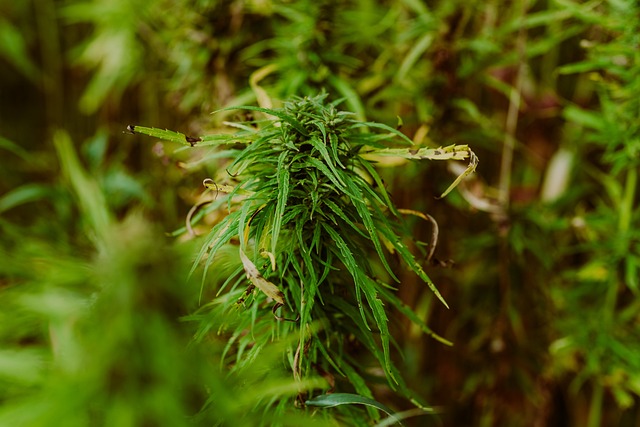
Thc-A vs. CBD Bud: Exploring Side Effects and Distinctions
THCA buds and CBD buds are non-psychoactive compounds found in the Cannabis sativa plant, each with distinct benefits. THCA, the precursor to THC, offers anti-inflammatory and neuroprotective potential and can provide an energizing effect without a 'high', which is more pronounced when converted into THC. It's commonly used for its therapeutic properties. CBD, on the other hand, is renowned for its well-documented benefits including anxiety relief, pain management, and anti-seizure effects, all without any psychoactive impact. The choice between THCA and CBD buds depends on individual health goals, desired effects, and personal tolerance for cannabinoids. Both have unique interactions with the endocannabinoid system, influencing different physiological responses. Users should be aware of their legal status, potential side effects like dry mouth and drowsiness, and consult medical advice if they have pre-existing health issues or are on other medications. Responsible consumption and further research are key to understanding the full scope of therapeutic potential for both THCA buds and CBD buds.
Exploring the nuanced differences between THCA flower and CBD bud, this article delves into the potential side effects associated with THCA consumption. We’ll dissect how THCA interacts with the body compared to CBD, elucidating their distinct impacts. From understanding dosage, onset, and duration of effects to the influence of bioavailability, we aim to provide a comprehensive guide for safe and informed use of THCA bud. Navigating the legal landscape and best practices ensures readers are equipped with the knowledge necessary to tailor their experience based on individual needs. Through scientific exploration and real-life testimonials, this article sheds light on the therapeutic potential of THCA flower beyond its side effects, offering insights into its future in cannabis research.
- Understanding THCA Flower and Its Distinction from CBD Bud
- The Potential Side Effects of THCA Flower Consumption
- Comparative Analysis: THCA vs. CBD Bud Effects on the Body
Understanding THCA Flower and Its Distinction from CBD Bud
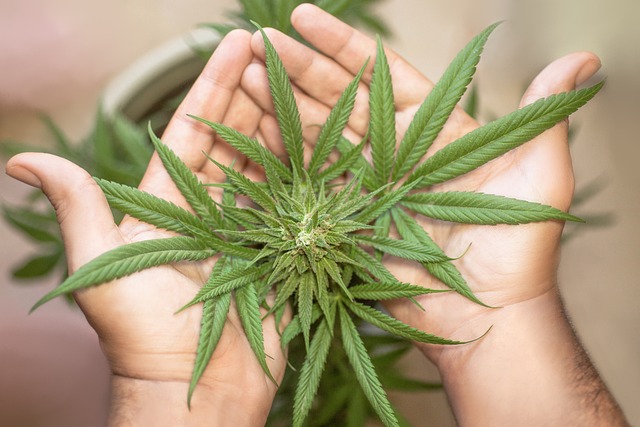
Delta-9-tetrahydrocannabinolic acid (THCA) and cannabidiol (CBD) are two prominent compounds found in the Cannabis sativa plant. THCA, the raw form of THC (delta-9-tetrahydrocannabinol), is present in raw marijuana flowers and undergoes decarboxylation to become THC when heated. Conversely, CBD remains largely unchanged regardless of heating or combustion. The distinction between THCA bud and CBD bud lies primarily in their effects on the human endocannabinoid system.
THCA buds are known for their potential psychoactive properties, which arise after decarboxylation into THC. This conversion transforms the experience from non-psychoactive to one that can induce a euphoric high, often associated with traditional marijuana use. THCA itself is reported to exhibit anti-inflammatory and neuroprotective qualities, making it a subject of interest in various therapeutic applications. On the other hand, CBD buds do not produce psychoactive effects and are hailed for their potential benefits in managing anxiety, epilepsy, and pain without the high associated with THC. Both THCA and CBD buds offer unique therapeutic properties, but it is crucial to understand the legal status of these compounds in your jurisdiction before consumption or use.
The Potential Side Effects of THCA Flower Consumption
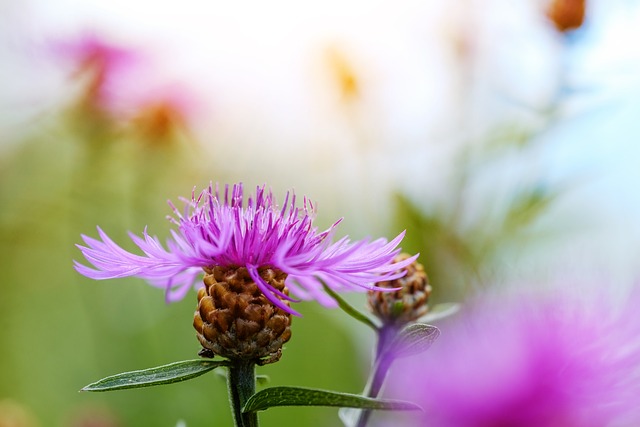
THCA, or Tetrahydrocannabinolic Acid, is the raw and un-decarboxylated form of THC found in cannabis plants. While often overshadowed by its activated form, THC, THCA has garnered attention for its potential therapeutic properties. However, like all cannabinoids, THCA flower consumption can lead to a range of side effects that are important for consumers to be aware of. Unlike its psychoactive cousin THC, THCA is non-psychoactive, which means it does not induce the ‘high’ commonly associated with cannabis. Nevertheless, some users may experience mild side effects when consuming THCA bud versus CBD bud. These can include dry mouth and dry eyes, both of which are typically mild and temporary. Users may also report drowsiness or lethargy, particularly at higher doses, due to THCA’s sedative effects. While THCA is generally considered safe, it’s crucial for individuals to start with lower doses to gauge their body’s response and avoid potential adverse reactions such as anxiety or paranoia, which can occur with high doses or sensitive individuals. It’s also worth mentioning that the side effects profile of THCA bud may vary from that of CBD bud, as CBD generally does not have intoxicating effects and is associated with a different set of side effects, primarily dry mouth and occasional drowsiness. Users considering THCA flower should approach it with caution, adhering to recommended dosages and consulting with healthcare professionals if they have underlying health conditions or are taking other medications.
Comparative Analysis: THCA vs. CBD Bud Effects on the Body
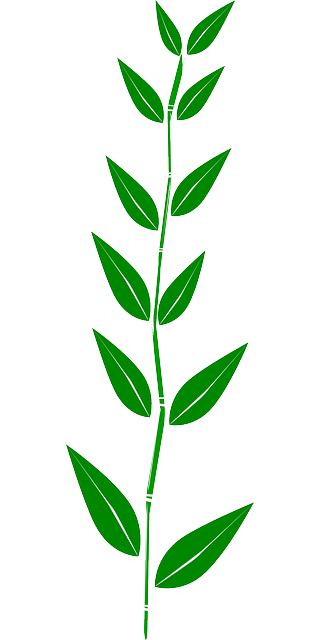
THCA, or tetrahydrocannabinolic acid, and CBD, or cannabidiol, are both prominent compounds found in the Cannabis sativa plant. While THCA is the acidic precursor to the psychoactive compound THC, CBD is non-psychoactive. When examining the effects of THCA versus CBD buds on the body, it’s crucial to consider the distinct pharmacological actions each compound elicits. THCA buds are known for their potential therapeutic properties, including anti-inflammatory and neuroprotective benefits, which may arise from their interaction with the endocannabinoid system. Users often report a more uplifting, energetic high from THCA due to its psychoactive nature when decarboxylated into THC.
Conversely, CBD buds offer a broad spectrum of wellness effects without the psychoactive ‘high’ associated with THC. These include anxiety and stress relief, pain management, and anti-seizure properties. CBD interacts with a wide range of receptors beyond the endocannabinoid system, potentially influencing serotonergic activity, which could explain its mood-regulating effects. The comparative analysis between THCA and CBD buds highlights that while both can be used for similar wellness purposes, their effects on the body are modulated by different mechanisms and can have different outcomes based on individual physiology and the specific condition being addressed. Users often prefer one over the other depending on the desired effect and personal tolerance to psychoactive substances.
In concluding this exploration into the distinctions and effects of THCA bud versus CBD bud, it’s evident that understanding the nuances between these two cannabinoid-rich substances is crucial for informed decision-making. While both have unique potential benefits, it’s imperative to recognize the distinct side effects associated with THCA flower consumption, particularly its psychoactive nature which differentiates it from CBD bud. The comparative analysis has highlighted the varied impacts on the body, emphasizing the importance of selecting the appropriate cannabinoid based on individual health goals and conditions. As research continues to evolve, staying informed on the latest findings remains essential for anyone considering incorporating THCA or CBD bud into their wellness regimen.
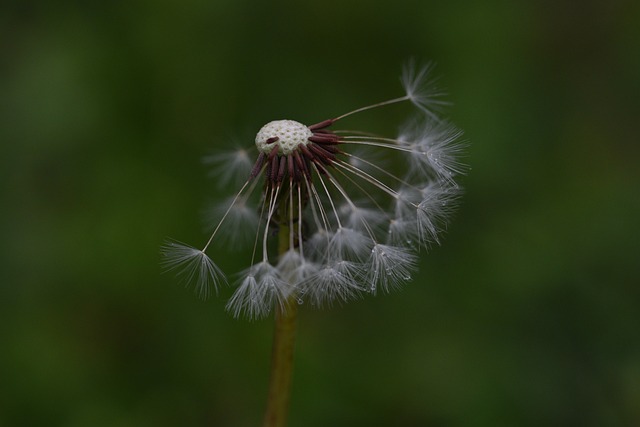
Decoding THCA Bud vs. CBD Bud: Effects and Safety Considerations
THCA (Tetrahydrocannabinolic Acid) and CBD (Cannabidiol) are two non-psychoactive cannabinoids from the cannabis plant, each with unique therapeutic properties. THCA is found in raw cannabis and offers potential benefits like pain relief and anti-inflammatory effects without causing intoxication. It's the precursor to THC and can transform into THC when heated. CBD is known for its calming effects and supports overall wellness, also sans psychoactive influence. When comparing THCA buds to CBD buds, THCA buds contain higher levels of THCA, while CBD buds have more CBD, both within the legal limit of 0.3% THC in many jurisdictions. Users should consider these differences and understand their effects on the endocannabinoid system when choosing between THCA bud vs CBD bud for personal use, keeping in mind that each has its own set of potential side effects and therapeutic applications. It's crucial to adhere to local laws, consult healthcare professionals, and be aware of the varying legal statuses across different locations before incorporating these cannabinoids into any health regimen. The choice between THCA buds and CBD buds should be informed by individual health needs and preferences, with a focus on personalized dosing for optimal therapeutic outcomes and minimal adverse reactions.
Exploring the nuanced effects of THCA flower, this article sheds light on its distinctions from CBD bud and delves into the science behind its potential impacts. We will dissect the side effects associated with THCA consumption, compare its therapeutic properties to those of CBD, and discuss how dosage influences these effects. Safety is paramount, and understanding legal considerations and interactions with other substances and medications is crucial. The entourage effect and personalized experiences based on sensitivity will be examined, alongside user testimonials and expert medical opinions. We’ll explore unresolved questions in THCA and CBD research, compare different consumption forms of these buds, and offer best practices for storage to minimize adverse effects. Addressing misconceptions, the impact on mental health, and answering common FAQs will round out this comprehensive guide on THCA bud vs CBD bud.
- Understanding THCA Flower and Its Distinction from CBD Bud
- The Science Behind THCA and Its Potential Effects
- THCA Flower Side Effects: What Users Should Know
- Comparing the Therapeutic Properties of THCA vs CBD
- The Role of Dosage in Experiencing THCA Flower Side Effects
Understanding THCA Flower and Its Distinction from CBD Bud
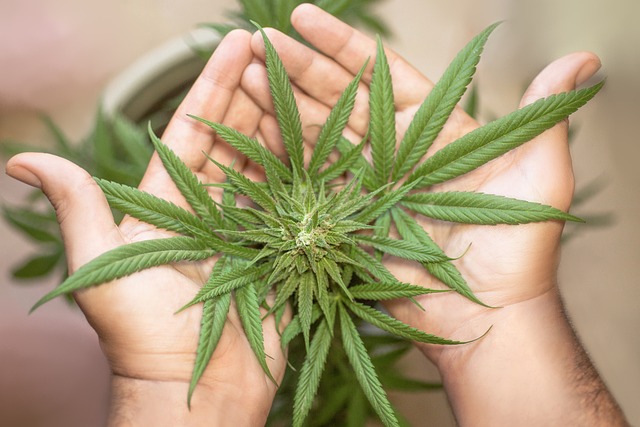
THCA, or Tetrahydrocannabinolic Acid, is a non-psychoactive cannabinoid found in raw cannabis plants, which, when heated, converts into the more well-known psychoactive compound THC. Unlike its psychoactive counterpart, THCA is gaining attention for its potential therapeutic properties without the mind-altering effects. When comparing THCA bud to CBD bud, several distinctions emerge. For one, while both contain less than 0.3% THC as per legal definitions in many jurisdictions, THCA buds have higher concentrations of THCA versus CBD buds, which have higher levels of cannabidiol (CBD). This differentiation is significant for consumers seeking the potential benefits associated with each cannabinoid. THCA buds are often used for their potential analgesic and anti-inflammatory effects, while CBD buds are favored for their calming properties and ability to support overall wellness without intoxication. Understanding the nuances between THCA and CBD, and how they interact with the body’s endocannabinoid system, is crucial for consumers looking to harness the unique benefits of each cannabinoid.
When considering the use of THCA or CBD buds, it’s important to note the varying effects and potential side effects. THCA flower, while non-psychoactive, can still cause some side effects such as drowsiness, dry mouth, or reduced blood pressure, similar to CBD. However, these are generally mild and can be managed with proper dosing and usage guidance. Users interested in exploring the benefits of THCA should approach it with caution, especially if they have pre-existing conditions or are taking other medications, as cannabinoids can interact with various physiological processes. It’s also worth mentioning that the legal status of THCA and CBD varies by location, and users should ensure they comply with local laws regarding cannabis products.
The Science Behind THCA and Its Potential Effects
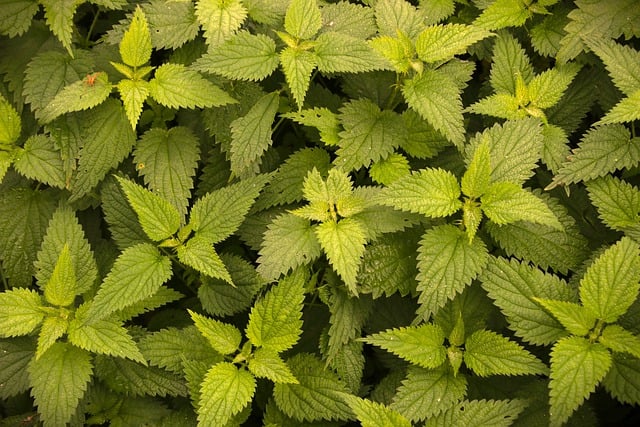
delta-9-tetrahydrocannabinolic acid (THCA) is the raw, non-psychoactive precursor to the well-known psychoactive cannabinoid THC. Found abundantly in raw cannabis plants, THCA has garnered attention for its potential therapeutic properties and has been a subject of growing scientific interest. Unlike its psychoactive counterpart, THCA does not induce euphoria but interacts with the body’s endocannabinoid system through its affinity for both CB1 and CB2 receptors. This interaction may influence various bodily functions including pain sensation, inflammation response, and immune system activity.
Research suggests that THCA may possess anti-inflammatory, anti-nausea, anti-emetic, anti-spasmodic, and neuroprotective qualities, making it a potential therapeutic agent. The effects of THCA are believed to be distinct from those of CBD (cannabidiol) and its derived products, such as CBD buds. While both cannabinoids share the same molecular family, their differing interactions with the endocannabinoid system result in unique therapeutic profiles. For instance, while THCA may exhibit stronger affinity for certain receptors than CBD, which has a lower affinity for these receptors, it does not produce the psychoactive effects that THC does upon decarboxylation. This process, where THCA converts to THC under heat, is what alters its effects profile. The comparison between THCA bud and CBD bud is particularly relevant in understanding their distinct roles in potential wellness regimens, as both may offer complementary benefits without the high associated with traditional THC-containing products.
THCA Flower Side Effects: What Users Should Know

When exploring the effects of THCA flower, which is the raw form of tetrahydrocannabinolic acid, a precursor to THC found in cannabis, it’s crucial for users to understand its distinct properties compared to CBD buds. Unlike THC, THCA is non-psychoactive, meaning it does not induce the ‘high’ associated with cannabis use. However, it exhibits potential therapeutic benefits that users should be aware of. Reports suggest that THCA flower may offer analgesic and anti-inflammatory properties, making it a subject of interest for those seeking relief from pain without psychoactive effects. Users considering THCA bud vs CBD bud should note that while both can provide medicinal benefits, the effects of THCA may be more pronounced in certain conditions due to its interaction with the endocannabinoid system.
As with any substance, users must be cautious and aware of potential side effects. THCA flower side effects can include dry mouth, red eyes, and mild anxiety, particularly at higher doses. It’s also worth noting that THCA, when exposed to heat or light, can degrade into THC, which could alter the intended effects. This conversion process underscores the importance of proper storage to maintain the integrity of the THCA compound. Users should start with a low dose to gauge their individual sensitivity and adjust accordingly. Additionally, it’s advisable to consult with a healthcare professional before incorporating THCA flower into one’s wellness regimen, especially if the user has underlying health conditions or is taking other medications. Understanding the nuances between THCA bud vs CBD bud can help users make an informed decision based on their needs and desired effects.
Comparing the Therapeutic Properties of THCA vs CBD
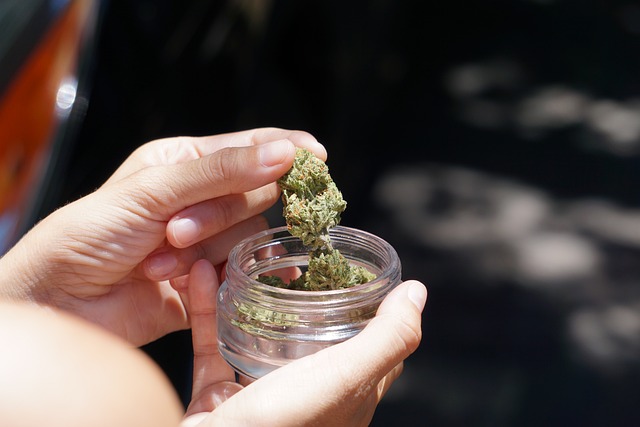
Delta-9-tetrahydrocannabinolic acid (THCA) and cannabidiol (CBD) are two prominent compounds found in the cannabis plant, each with distinct therapeutic properties. While THCA is the non-psychoactive precursor to the well-known psychoactive compound Delta-9-THC, CBD is a non-psychoactive substance that has gained recognition for its wide array of health benefits. When comparing THCA bud vs CBD bud, it’s clear that their effects can vary significantly.
THCA buds are often sought after for their potential pain-relieving and anti-inflammatory properties. Users report that THCA may be effective in managing chronic pain, neuropathy, and inflammation due to its interaction with the body’s endocannabinoid system. This suggests that THCA buds could be particularly beneficial for conditions like arthritis or multiple sclerosis. On the other hand, CBD buds are celebrated for their calming and anxiolytic effects, making them a preferred choice for individuals looking to alleviate anxiety, depression, or stress-related symptoms without the high associated with THC. Additionally, CBD is known to have neuroprotective and antioxidant properties, which may contribute to its therapeutic potential in neurological disorders. Both THCA and CBD buds offer unique benefits and can be used independently or in conjunction for a tailored therapeutic effect. Users interested in exploring the differences between THCA bud vs CBD bud should consider their specific health needs and consult with healthcare professionals for personalized guidance.
The Role of Dosage in Experiencing THCA Flower Side Effects
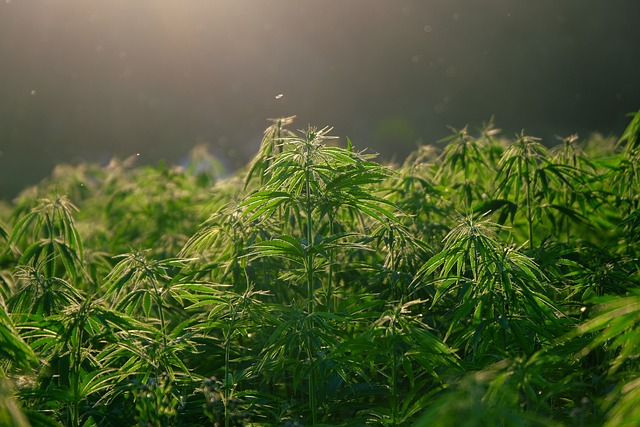
THCA flower, which contains the non-psychoactive cannabinoid tetrahydrocannabinolic acid (THCA), offers many potential health benefits similar to those of its counterpart CBD, but with distinct effects due to its chemical structure. When considering the role of dosage in experiencing THCA flower side effects, it’s crucial to understand that THCA buds and CBD buds differ significantly in their psychoactive properties. THCA buds can produce a mild euphoria or high when consumed, whereas CBD buds are non-psychoactive and do not induce such effects. The dosage of THCA flower directly influences the intensity of its psychoactive impact as well as any potential side effects.
For instance, at lower doses, THCA is known to provide uplifting and energetic effects without the strong psychoactive punch associated with its decarboxylated form, THC. As the dose increases, so might the likelihood of encountering side effects such as anxiety, paranoia, or discomfort in some individuals. It’s important for consumers to start with a low dose and gradually increase it while monitoring their body’s response. This approach allows users to find the optimal dosage that balances therapeutic benefits with minimal adverse reactions. Additionally, individual sensitivity varies; factors like body chemistry, tolerance, and prior experience with cannabis can influence how THCA affects an individual. Therefore, personalization of dosage is key when using THCA buds, ensuring a safe and beneficial experience while minimizing the risk of unwanted side effects.
In conclusion, the exploration into the differences between THCA flower and CBD bud has underscored the distinct properties and potential effects of each. While both serve as natural alternatives for health and well-being, understanding the science behind THCA’s composition and its unique potential benefits is crucial for informed decision-making. It is imperative for users to be aware of the side effects associated with THCA flower consumption, which can range from mild to severe, depending on dosage. As highlighted throughout this article, the therapeutic properties of THCA contrast with those of CBD, necessitating a discerning approach when choosing between them. Users should consider their individual health needs and consult healthcare professionals before incorporating either into their wellness routine, particularly given the potential side effects that can arise from THCA bud use. By weighing the evidence and understanding the nuances of each compound, consumers can make more informed choices regarding their use, ensuring a safe and beneficial experience.
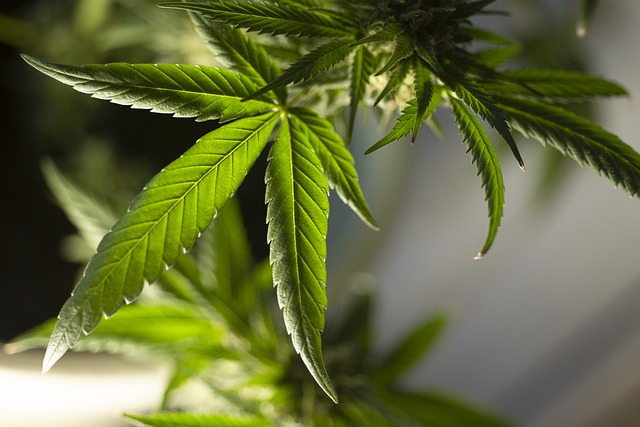
THCA Bud vs. CBD Bud: A Detailed Analysis of Their Differences and Health Implications
The Cannabis sativa plant produces both THCA bud and CBD bud, each with distinct therapeutic properties. THCA bud naturally contains THCA, a non-psychoactive precursor to THC, which offers potential health benefits like anti-inflammatory and neuroprotective effects, useful for conditions such as arthritis or multiple sclerosis. When activated through heating, THCA converts to delta-9 THC, which is psychoactive. In contrast, CBD bud lacks psychoactive effects and is known for alleviating symptoms of anxiety, pain, and inflammation without affecting cognitive function. Both can be consumed in various forms, with their own effect profiles and durations. Recent scientific studies have explored the therapeutic potential of THCA, emphasizing its non-psychoactive nature and how it engages with the endocannabinoid system differently than THC or CBD. The unique structure of THCA sets it apart from CBD, affecting CB1 and CB2 receptors without mind-altering effects, offering anti-inflammatory and neuroprotective properties that are currently under scientific scrutiny. The entourage effect, which describes the synergistic interaction between different cannabinoids, terpenes, flavonoids, and other compounds in cannabis, is crucial for understanding the enhanced therapeutic effects of THCA bud compared to CBD bud. Consumers should consider these differences when choosing between THCA bud and CBD bud for their specific health needs.
Exploring the nuanced differences between THCA and CBD buds offers a fascinating journey into the world of cannabinoids. This article dissects the various aspects of these compounds, including their distinct effects, chemical structures, and the entourage effect they elicit. As we delve into ‘THCA Flower Side Effects: What Users Should Know,’ we aim to provide a balanced perspective on the potential side effects associated with THCA consumption. From understanding the therapeutic properties of each to navigating legal landscapes and personal anecdotes, this comprehensive guide will illuminate the science behind their psychoactive attributes and explore how they may interact with other substances. Whether you’re considering THCA or CBD for medicinal purposes or personal well-being, the information presented here will help you make an informed choice based on the latest research and user experiences.
- THCA Flower vs CBD Bud: A Comprehensive Comparison
- Understanding THCA: Potential Effects and Benefits
- The Chemical Structure of THCA and Its Implications
- Exploring the Entourage Effect in THCA Flower Consumption
THCA Flower vs CBD Bud: A Comprehensive Comparison
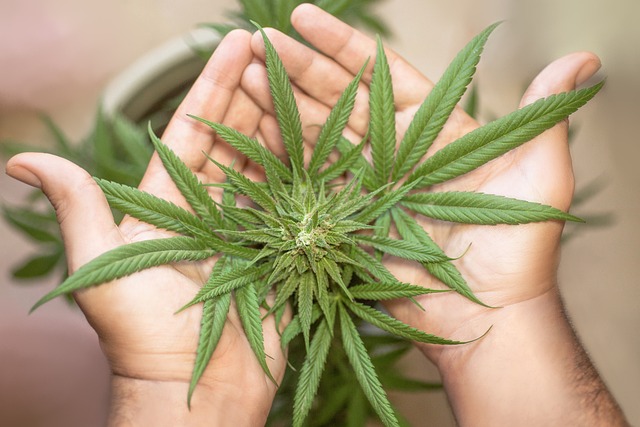
Delta-9 tetrahydrocannabinolic acid (THCA) flower and cannabidiol (CBD) bud both derive from the Cannabis sativa plant but possess distinct properties and effects. THCA bud, which contains the raw acidic form of THC, offers potential therapeutic benefits without the psychoactive high typically associated with THC once it degrades into delta-9 THC upon heating or combustion. Conversely, CBD bud is renowned for its non-psychoactive nature and is celebrated for its ability to alleviate various ailments, including anxiety, pain, and inflammation, without altering one’s cognitive state.
When comparing THCA bud versus CBD bud, it’s essential to understand their respective interactions with the body’s endocannabinoid system. THCA is known for its potential anti-inflammatory and neuroprotective effects, which may be beneficial in conditions like arthritis or multiple sclerosis. On the other hand, CBD bud interacts with the system to modulate immune response, reduce pain, and improve overall well-being. Both compounds can be consumed in various forms, including flowers for smoking, edibles, topicals, and concentrates, each offering a different onset of effects and duration. Users often select between THCA and CBD based on their specific health concerns and desired outcomes, with THCA offering a more potent psychoactive effect once activated and CBD providing a wide array of medicinal properties without impairment.
Understanding THCA: Potential Effects and Benefits
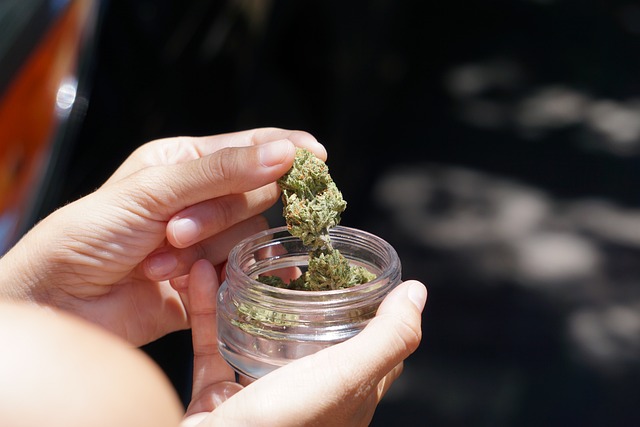
Throughout recent years, scientific research has shed light on the potential effects and benefits of THCA, or tetrahydrocannabinolic acid, a non-psychoactive cannabinoid found in raw cannabis plants. Unlike its psychoactive counterpart THC, which is formed when cannabis is heated, THCA interacts with the body’s endocannabinoid system without the psychotropic effects. This distinction has led to growing interest in the medicinal properties of THCA bud vs CBD bud. Preliminary studies suggest that THCA may offer a range of therapeutic benefits, including anti-inflammatory and neuroprotective effects. It’s postulated that THCA could be beneficial for conditions like inflammatory bowel disease due to its anti-inflammatory action, and it may also have potential in neurodegenerative diseases such as multiple sclerosis, given its neuroprotective properties. In contrast to CBD bud, which is known for its lack of psychoactive effects and broad therapeutic profile, THCA buds are gaining attention for their unique potential benefits. Consumers and researchers alike are exploring the differences between these two cannabinoid-rich plant derivatives, with an emphasis on understanding how each might influence health and wellness. As the body of research continues to expand, it’s clear that both THCA bud and CBD bud have distinct roles in the cannabis landscape, offering different therapeutic profiles that could be harnessed for various health applications.
The Chemical Structure of THCA and Its Implications
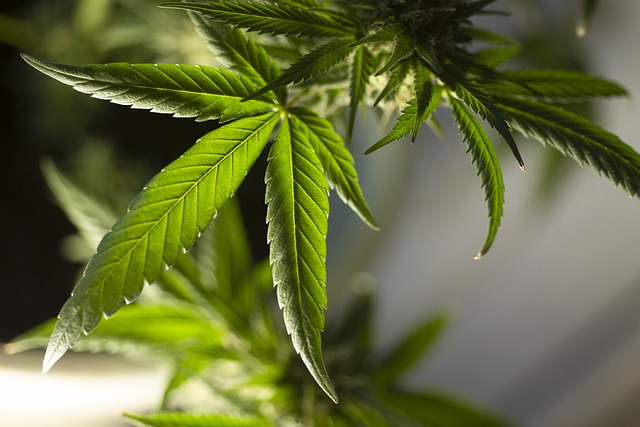
Delta-9-tetrahydrocannabinolic acid (THCA) is a natural cannabinoid found in the resin of the Cannabis sativa plant, which, when exposed to heat or sunlight, decarboxylates into the more well-known psychoactive compound delta-9-tetrahydrocannabinol (THC). THCA exists in both raw cannabis plants and preserved cannabis products like fresh frozen “thca bud” and is non-psychoactive. Its chemical structure, which includes a pentyl ring fused to a phenolic ring, differentiates it from other cannabinoids like CBD, where the hydroxyl group on the aromatic ring is replaced by a methyl group. This structural distinction means that THCA interacts with the body’s endocannabinoid system through its CB1 and CB2 receptors in distinct ways compared to CBD, which lacks psychoactive effects due to its different molecular arrangement.
The implications of THCA’s chemical structure are significant when comparing it to CBD, particularly in terms of therapeutic potential. While both compounds have been studied for their health benefits, THCA is believed to possess anti-inflammatory, neuroprotective, and analgesic properties. These effects are attributed to its ability to bind with the CB1 receptors found predominantly in the central nervous system and the CB2 receptors found throughout the peripheral nervous system, influencing a range of physiological processes without the psychoactive side effects associated with THC. Conversely, CBD interacts with these receptors differently, offering therapeutic benefits without altering one’s state of mind. The choice between THCA bud and CBD bud thus depends on the desired therapeutic or recreational effect, as well as individual physiological responses to each cannabinoid. Understanding the nuanced differences in their chemical structures and resulting interactions with the body is crucial for consumers seeking specific outcomes from cannabis use.
Exploring the Entourage Effect in THCA Flower Consumption
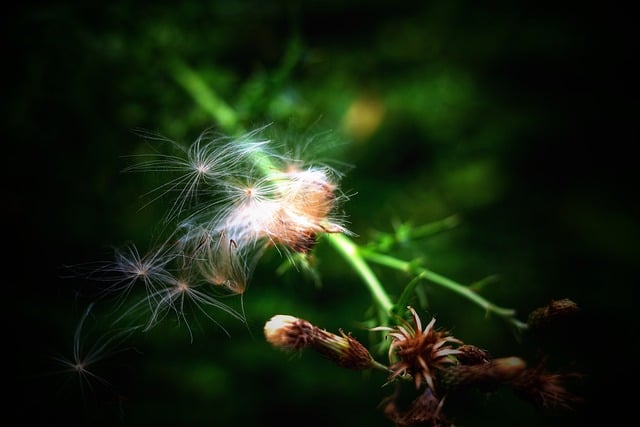
The exploration of cannabinoids and their interactions within the cannabis plant has led to a significant understanding of the entourage effect, particularly in the context of THCA flower consumption compared to CBD bud. THCA, or tetrahydrocannabinolic acid, is the precursor to THC, the psychoactive component often found in high-THC cannabis strains. Consumption of THCA bud has been associated with a range of effects, including potential therapeutic benefits, which are believed to be more pronounced when the entourage effect is intact. This effect refers to the collective impact of all the cannabinoids, terpenes, flavonoids, and other compounds within the cannabis plant, which can influence the overall efficacy and experience of the user. When comparing THCA bud to CBD bud, it’s evident that while both contain their respective primary cannabinoids, the entourage effect in THCA bud may lead to a different, often more potent, outcome due to the presence of THC and its ability to bind with cannabinoid receptors in the body, enhancing or modulating the effects of THCA. Research suggests that the combination of THCA and THC, along with the other compounds, can offer a broader spectrum of therapeutic properties compared to isolating and consuming CBD alone. Users report a more nuanced experience when using THCA bud, which may include heightened pain relief, anti-inflammatory effects, and anxiety reduction. Understanding the entourage effect is crucial for consumers looking to harness the full potential of their cannabis experience, as it can significantly affect the desired therapeutic outcomes, especially in the context of THCA flower side effects and their management.
In conclusion, the exploration of THCA bud versus CBD bud has shed light on the distinct properties and potential benefits each offers. Understanding the chemical structure of THCA and its implications within the entourage effect provides a clearer picture of its effects when consumed in flower form. While both THCA flower and CBD bud have their merits, discerning consumers can make informed decisions based on individual health goals, preferences, and the advice of healthcare professionals. As research continues to evolve, the understanding of cannabinoids like THCA is likely to expand, offering further insight into their therapeutic potential. For those considering THCA flower as an alternative or complementary treatment option, it’s crucial to approach its use with caution and knowledge, given its unique interactions within the body’s endocannabinoid system. With a growing body of evidence supporting the benefits of cannabinoids, both THCA bud vs CBD bud are poised to play significant roles in wellness routines.
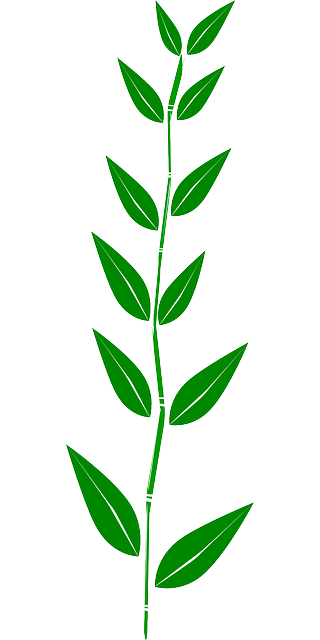
Unveiling THCA Flower: A Cannabinoid Compendium Compared to CBD Buds
🌿 TL;DR: THCA buds are a non-psychoactive form of cannabis rich in THC acid, offering therapeutic benefits like anti-inflammatory and neuroprotective effects without the high associated with THC. Unlike CBD buds, which primarily interact with the endocannabinoid system for wellness effects, THCA buds harness the entourage effect, enhancing their potential through all cannabis compounds. These buds are gaining popularity in legal markets for their mood-enhancing, pain-relieving, and appetite-stimulating properties. Consumers can choose from various consumption methods like smoking, vaporizing, or edibles to suit individual needs. THCA vs CBD buds present different profiles, with THCA providing a clear-headed uplift at lower temperatures, while CBD is non-psychoactive and beneficial for anxiety and sleep. Both are in demand for their distinct effects in the health and wellness space, with users exploring both to find personal preference and effectiveness. 🌿
Explore the intricate world of THCA flower, a non-psychoactive cannabinoid that’s garnering attention for its potential therapeutic properties. This article delves into the multifaceted aspects of THCA, from its distinction from CBD buds to its conversion into THC and the myriad ways it can be utilized. We’ll guide you through understanding THCA’s chemistry, the legality surrounding its use, and how to safely consume it for optimal effects. Whether you’re a first-time user or an experienced cannabinoid enthusiast, this comprehensive guide covers everything from growing your own THCA buds to the latest research on their medical applications. Join us as we unravel the potential of THCA flower in the cannabis landscape.
- THCA Flower: An Overview of Its Potential and Uses
- THCA Bud vs CBD Bud: Comparing Cannabinoid Profiles
THCA Flower: An Overview of Its Potential and Uses
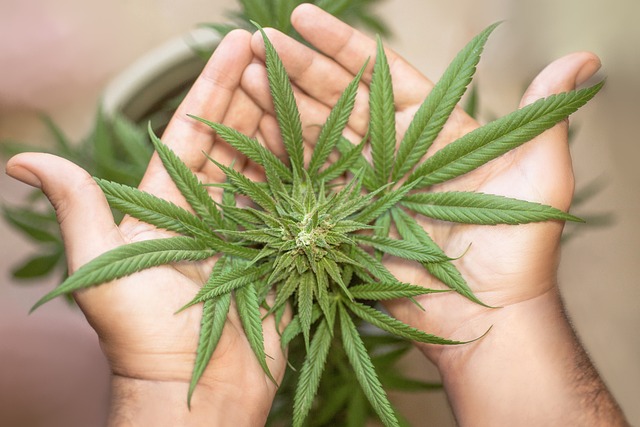
THCA flower, or tetrahydrocannabinolic acid, exists in its raw form before decarboxylation, which is the process that converts THCA into the psychoactive THC found in cannabis. As a non-psychoactive cannabinoid, THCA buds offer potential benefits that are distinct from their CBD counterparts. Unlike CBD buds, which primarily interact with the body’s endocannabinoid system without intoxicating effects, THCA buds hold promise for their potential therapeutic properties. Preliminary research suggests that THCA may have anti-inflammatory, anti-nausea, and neuroprotective qualities, making it a subject of interest for various health applications. The entourage effect, which refers to the combined effects of all cannabinoids, terpenes, and flavonoids within the plant, is also a factor in the potential efficacy of THCA flower. This synergy can influence the overall impact of the compound, offering benefits that may be more pronounced than when THCA is isolated.
In the realm of legal cannabis markets, THCA buds are gaining attention for their diverse uses. Consumers and patients are exploring its potential effects, which include mood enhancement, pain relief, and appetite stimulation. The non-intoxicating nature of raw THCA makes it an appealing option for those seeking the therapeutic benefits of cannabis without the psychoactive high associated with its decarboxylated form, THC. As such, THCA buds are being integrated into various consumption methods, including smoking, vaporizing, and infusion into edibles, each offering a unique experience based on individual metabolism and the desired effects. The distinction between THCA bud vs CBD bud is becoming increasingly relevant as consumers become more informed and discerning about their cannabis products.
THCA Bud vs CBD Bud: Comparing Cannabinoid Profiles
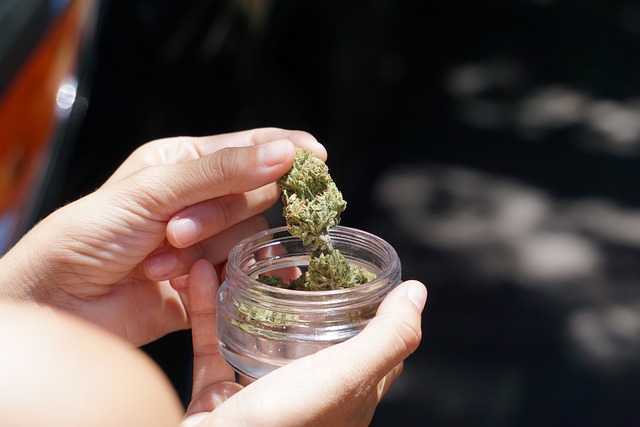
THCA, or tetrahydrocannabinolic acid, is the raw form of THC, which is the primary psychoactive component found in cannabis. THCA buds are recognized for their potential therapeutic benefits, including pain relief and anti-inflammatory effects. Unlike its decarboxylated counterpart, THC, THCA does not induce psychoactive effects until it is heated or consumed in a manner that activates its chemical structure. This means that THCA buds offer a distinct experience from their heated counterparts, providing a clear-headed and uplifting sensation for many users.
On the other hand, CBD buds contain cannabidiol, another prominent cannabinoid known for its therapeutic properties without the high associated with THC. CBD buds are rich in compounds that interact with the body’s endocannabinoid system, offering a wide array of potential health benefits such as anxiety relief and improved sleep quality. Unlike THCA, CBD remains largely inert under heat, meaning that it maintains its non-psychoactive characteristics regardless of how it is consumed. Both THCA and CBD buds offer unique profiles that cater to different preferences and desired effects, making them valuable for both medicinal and recreational use. Users often explore these two cannabinoid-rich flower types by comparing their distinct effects and determining which one aligns with their specific wellness goals or personal preferences.
THCA-rich flowers present a unique opportunity within the cannabinoid landscape, offering distinct potentials and uses compared to their CBD counterparts. This exploration of THCA bud versus CBD bud has shed light on the nuanced differences in their cannabinoid profiles, highlighting the therapeutic and experiential distinctions that users may seek. As legal landscapes evolve and research continues to unfold, the potential applications for THCA flower are poised to expand, offering a promising alternative or complement to traditional CBD products. Whether for medicinal or recreational use, understanding the specific effects and benefits of each cannabinoid is crucial for consumers looking to make informed choices.
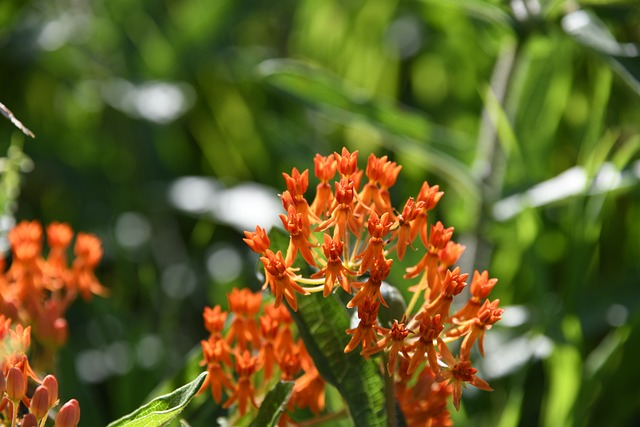
Exploring the Healing Properties of THCA Buds vs. CBD Buds
THCA buds, which contain the non-psychoactive cannabinoid tetrahydrocannabinolic acid (THCA), present a range of therapeutic benefits, distinct from those offered by CBD buds. These benefits include anti-inflammatory, neuroprotective, and analgesic effects, making THCA buds a potential alternative for managing pain and inflammation without mind-altering side effects. Research suggests that THCA's interaction with the endocannabinoid system's CB1 and CB2 receptors is responsible for these effects. Unlike CBD buds, which are known for their calming and anti-anxiety properties, THCA buds may also aid against nausea, stimulate appetite, and exhibit potential anti-cancer properties. As the understanding of THCA bud vs CBD bud deepens, both are seen as valuable options in cannabinoid-based health solutions, with each offering unique wellness benefits. The comparison between these two types of buds is crucial for consumers looking for targeted effects, and as research progresses, the potential of THCA continues to be unveiled, highlighting its significance in therapeutic applications.
Explore the transformative properties of THCA flower, a natural wellness champion that’s capturing attention in health and well-being circles. This article dissects the myriad benefits of THCA bud versus CBD bud, illuminating their distinctive effects and potential within the realm of natural health. From its emerging status as a wellness superstar to its therapeutic properties, we delve into how raw cannabis can offer significant advantages. Understand the entourage effect, explore legal considerations, and learn safe consumption methods for harnessing THCA’s anti-inflammatory and neuroprotective benefits. Whether addressing chronic pain, mental health concerns, or optimizing athletic performance, THCA’s role is becoming increasingly apparent. Join us as we navigate the scientific evidence, user experiences, and future research implications that position THCA at the forefront of cannabinoid therapy.
- Unlocking the Potential of THCA Flower: A Closer Look at Its Benefits
- THCA Bud vs CBD Bud: Understanding the Key Differences
- The Emergence of THCA as a Wellness Superstar
- THCA Flower's Role in Natural Health and Well-being
Unlocking the Potential of THCA Flower: A Closer Look at Its Benefits
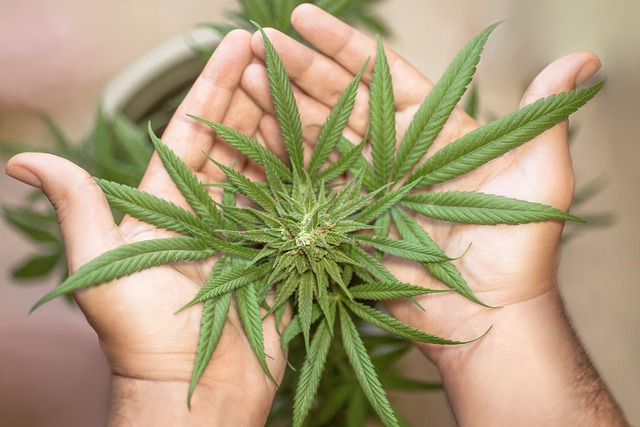
Unlocking the Potential of THCA Flower: A Closer Look at Its Benefits
THCA, or tetrahydrocannabinolic acid, is a cannabinoid found in the raw cannabis plant, which, when heated or decarboxylated, converts into the more well-known psychoactive compound THC. Unlike its activated form, THCA exists naturally and is non-psychoactive, offering a unique set of potential benefits distinct from those of CBD, or cannabidiol. THCA buds are revered for their therapeutic properties, which include anti-inflammatory, neuroprotective, and analgesic effects. Preliminary research suggests that THCA may be particularly beneficial in managing pain and inflammation without the psychoactive side effects associated with THC. This makes it an attractive option for individuals seeking relief from various conditions without altering their mental state.
In comparison to CBD buds, which are rich in cannabidiol and known for their calming and anti-anxiety effects, THCA buds offer a different spectrum of benefits. While CBD is celebrated for its ability to alleviate anxiety and stress, THCA’s potential lies in its interaction with the body’s endocannabinoid system, particularly the CB1 and CB2 receptors. This interaction may contribute to its anti-nausea, appetite-stimulating, and potential anti-cancer properties, as suggested by some studies. The unique benefits of THCA buds make them a compelling choice for those looking for alternative wellness solutions, especially in the realms of pain management and inflammation reduction. As interest in cannabinoids grows, so does the scientific community’s pursuit to fully understand the therapeutic potential of compounds like THCA.
THCA Bud vs CBD Bud: Understanding the Key Differences
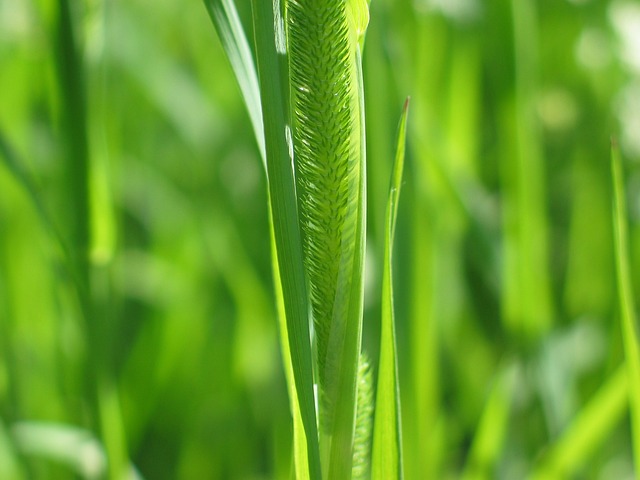
Exploring the differences between THCA and CBD buds is essential for anyone interested in the cannabis plant’s diverse effects and applications. THCA, or Tetrahydrocannabinolic Acid, is the raw, uncured form of THC (Tetrahydrocannabinol), which is the primary psychoactive component in cannabis. In its natural state, THCA is non-psychoactive but is known to possess potential medicinal properties. Upon decarboxylation through heating or curing, THCA converts into THC, unlocking its psychoactive effects. On the other hand, CBD buds contain Cannabidiol, a non-psychoactive compound that has garnered significant attention for its therapeutic benefits. CBD interacts with the body’s endocannabinoid system and is often sought after for its potential to alleviate anxiety, pain, and other conditions without the “high” associated with THC.
The effects of consuming each type of bud can vary significantly. THCA buds may offer potential benefits for inflammation and neuroprotection due to their affinity for the CB2 receptors in the endocannabinoid system, making them a subject of interest in various therapeutic contexts. In contrast, CBD buds are celebrated for their calming and relaxing effects, without altering one’s cognitive state, which makes them suitable for use during the day or for individuals sensitive to THC’s psychoactive properties. Both THCA and CBD have unique profiles that can influence their medical and recreational applications, and understanding these differences is crucial for consumers looking to harness the specific benefits each cannabinoid offers. Whether for wellness, therapeutic use, or recreational enjoyment, discerning between THCA and CBD buds allows for a more tailored cannabis experience.
The Emergence of THCA as a Wellness Superstar
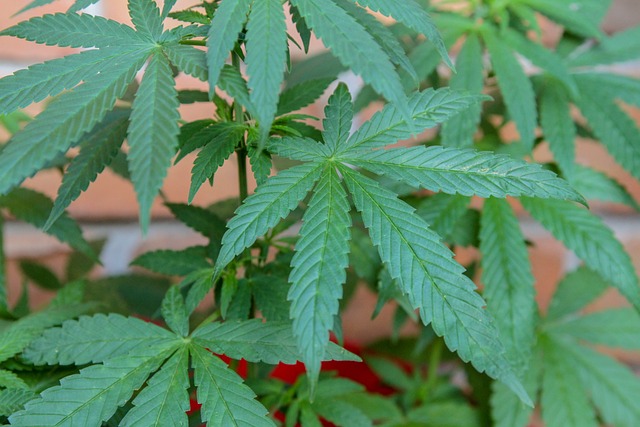
The non-psychoactive compound THCA (tetrahydrocannabinolic acid), found naturally in raw cannabis plants, has been gaining attention for its potential wellness benefits. As research continues to unfold, THCA is emerging as a standout player in the realm of health and well-being. Unlike its more famous counterpart THC (tetrahydrocannabinol), THCA does not produce psychoactive effects, making it a viable option for those seeking the therapeutic properties of cannabis without the high. This has led to an increased interest in THCA buds, which are cultivated and harvested specifically to maintain high levels of this compound. The benefits attributed to THCA include anti-inflammatory, neuroprotective, and analgesic effects, making it a compelling alternative to CBD (cannabidiol) buds, which are renowned for their own set of wellness properties. Advocates claim that THCA buds may offer superior support for managing pain, reducing anxiety, and promoting overall health due to its interaction with the body’s endocannabinoid system. As consumers become more discerning about their cannabinoid choices, the distinction between THCA bud vs CBD bud becomes increasingly relevant in the pursuit of targeted wellness outcomes. The potential of THCA as a wellness superstar is not only due to its emerging scientific backing but also the growing body of anecdotal evidence from those who have incorporated THCA-rich products into their health regimen. With a focus on holistic health and natural remedies, THCA’s rise in popularity is set to continue as more individuals explore its potential benefits.
THCA Flower's Role in Natural Health and Well-being

THCA, or tetrahydrocannabinolic acid, is a non-psychoactive cannabinoid found in raw cannabis plants, which, when heated, converts into the more well-known psychoactive compound THC. The THCA bud, in its natural, unheated state, has garnered attention for its potential health and wellness benefits. Unlike its decarboxylated counterpart, THC, THCA exhibits a distinct profile that includes anti-inflammatory, neuroprotective, and potentially analgesic properties. Consumers interested in the therapeutic effects of cannabis are increasingly exploring THCA buds as an alternative to CBD buds, which are rich in cannabidiol, another non-psychoactive cannabinoid known for its calming and pain-relieving effects. The THCA bud vs CBD bud comparison is a nuanced one, with each offering a unique set of potential benefits for natural health and well-being.
Advocates for THCA flower highlight its role in promoting homeostasis within the body’s endocannabinoid system, which plays a crucial part in regulating various physiological processes. Preliminary research suggests that THCA may offer relief from symptoms associated with chronic inflammation and neurodegenerative disorders. Its anti-inflammatory properties are particularly noteworthy for individuals seeking natural alternatives to manage pain and inflammation without the psychoactive effects of THC. Additionally, the potential benefits of THCA flower extend to supporting overall wellness, including mental clarity and improved mood, making it a compelling option for those looking to incorporate cannabinoids into their health regimen. As with any supplement, it is advisable to consult with a healthcare professional before integrating THCA buds into one’s routine, especially given the varying legal statuses of such products across different jurisdictions.
THCA flower has emerged as a significant wellness component, offering distinct advantages that set it apart from its counterpart, the CBD bud. As this exploration has revealed, THCA’s potential benefits are promising for those seeking natural health and well-being solutions. The comparison between THCA and CBD buds highlights the unique properties of THCA, which may offer more robust effects in various therapeutic areas. Embracing the insights from ‘Unlocking the Potential of THCA Flower: A Closer Look at Its Benefits’ and ‘THCA Bud vs CBD Bud: Understanding the Key Differences,’ it’s clear that THCA flower holds a valuable place in the realm of holistic health. Its role extends beyond traditional cannabinoid usage, paving the way for broader applications in wellness practices. As research continues to evolve, the benefits of THCA are likely to be further understood and utilized, solidifying its status as a wellness superstar in the world of natural remedies.
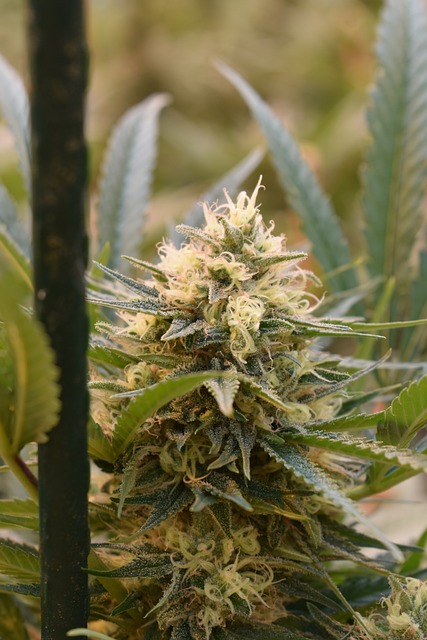
THCA Flower vs. CBD Bud: Exploring the Potential of Raw Cannabinoids
THCA buds and CBD buds are distinct in their therapeutic properties and effects. THCA, a non-psychoactive cannabinoid found in raw cannabis, offers pain relief and anti-inflammatory benefits similar to CBD but without the psychoactive 'high'. The entourage effect in THCA buds may provide a more comprehensive wellness experience due to the interaction of its compounds. While both THCA and CBD are non-psychoactive, CBD is legally more accepted and has been widely studied for its potential health benefits, which include reducing anxiety and pain. THCA, on the other hand, has an energizing effect and can be converted into THC when heated. The choice between THCA buds and CBD buds depends on whether one seeks the psychoactive effects of THC or the therapeutic benefits associated with CBD. Both can be consumed through various methods like smoking, vaporization, edibles, tinctures, and topicals, each influencing the cannabinoids' onset and duration of effects. Understanding the differences between THCA buds vs CBD buds is crucial for consumers to make informed decisions tailored to their wellness goals, ensuring they select the most suitable product for their needs.
Discover the transformative potential of THCA flower in our comprehensive exploration. Unlike its counterpart CBD buds, THCA presents a unique profile with promising benefits. Delve into the intricate chemical dynamics that set THCA apart and understand its effects, advantages, and diverse consumption options. This article, “Unraveling THCA Flower: A Closer Look at the Potential Powerhouse Compared to CBD Buds,” offers an in-depth analysis of the THCA bud vs CBD bud debate, providing valuable insights for those intrigued by the therapeutic properties of cannabinoids.
- Unraveling THCA Flower: A Closer Look at the Potential Powerhouse Compared to CBD Buds
- The Chemical Dynamics of THCA vs CBD: Effects, Benefits, and Consumption Methods
Unraveling THCA Flower: A Closer Look at the Potential Powerhouse Compared to CBD Buds
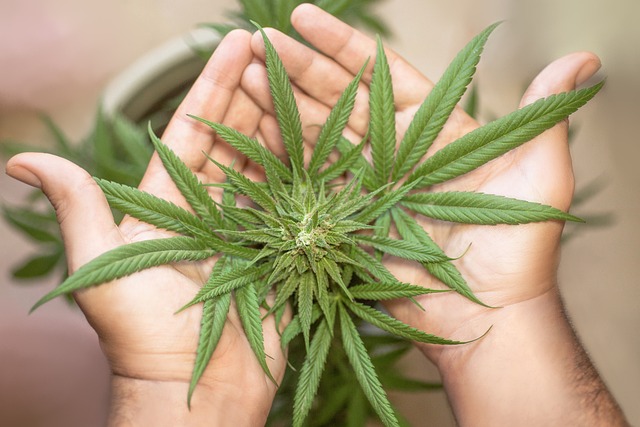
Unraveling THCA flower presents a fascinating exploration into a cannabinoid that, unlike its counterpart CBD, exists in its raw, acidic form. Tetrahydrocannabinolic acid (THCA) is the precursor to THC, the psychoactive component of cannabis, but before it undergoes decarboxylation through heat, it offers a unique set of benefits distinct from those found in CBD buds. THCA buds are gaining attention for their potential wellness properties, which some users report include pain relief and anti-inflammatory effects without the psychoactive ‘high’ associated with THC. The entourage effect, a concept highlighting the synergistic interaction between cannabinoids and terpenes in cannabis, is particularly pronounced in THCA flower. This suggests that THCA may offer a more nuanced and comprehensive therapeutic experience compared to CBD buds, which primarily interact with the body’s endocannabinoid system without the psychoactive component. Users interested in exploring the potential of THCA should consider its distinct effects and how they align with their wellness goals, differentiating it from CBD buds that are often favored for their non-psychoactive properties and widespread legal availability. As research continues to evolve, the unique profile of THCA flower is becoming increasingly recognized in the realm of cannabinoid therapy.
The Chemical Dynamics of THCA vs CBD: Effects, Benefits, and Consumption Methods
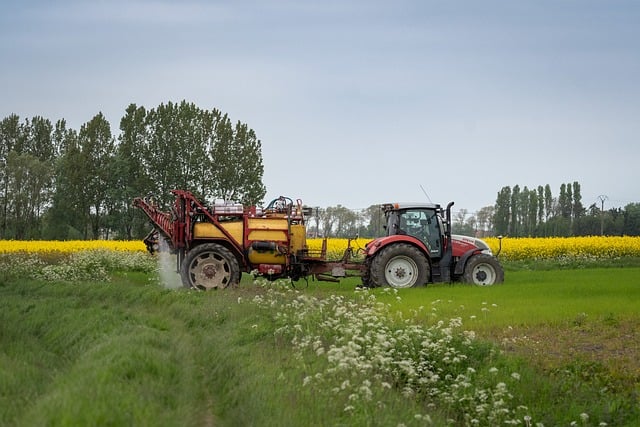
Delta-9-tetrahydrocannabinolic acid (THCA) and cannabidiol (CBD) are two prominent cannabinoids found in the Cannabis sativa plant. While THCA is the non-psychoactive precursor to the psychoactive compound delta-9-tetrahydrocannabinol (THC), CBD is non-psychoactive and has gained recognition for its potential therapeutic properties. The chemical dynamics between THCA and CBD influence their effects, benefits, and consumption methods, distinguishing them from one another.
THCA buds are often associated with a more potent, energetic high due to the presence of THC once heated. This cannabinoid interacts with the body’s endocannabinoid system, affecting neurotransmitter release, emotional and pain response, memory, motor skills, and sleep. On the other hand, CBD buds offer a wide array of benefits without the psychoactive effects. Known for its potential to reduce anxiety, inflammation, and pain, as well as its ability to complement the therapeutic effects of THC when consumed together, CBD is a versatile compound with a growing body of scientific support for its use in various wellness regimens.
Consumption methods for both THCA and CBD buds vary widely, from traditional smoking and vaporization to more modern methods like edibles, tinctures, and topicals. The onset and duration of effects can differ significantly based on the consumption method chosen. For instance, inhaled THCA provides rapid onset but a shorter-lasting effect, while CBD consumed as an edible may take longer to take full effect but can offer prolonged benefits. Understanding the nuances between THCA bud vs CBD bud is crucial for consumers seeking specific therapeutic or psychoactive outcomes and for tailoring their consumption method accordingly.
THCA flower has emerged as a subject of significant interest within the realm of cannabinoid research, offering a distinct profile compared to its counterpart, CBD buds. This article has delved into the intricate chemistry and potential benefits of THCA, illuminating its unique effects and diverse consumption methods. As we conclude, it’s evident that THCA buds hold great promise for those seeking the therapeutic properties of cannabinoids without the psychoactive impact associated with THC. The comparative analysis between THCA and CBD buds underscores the importance of understanding each compound’s specific benefits, highlighting a new frontier in cannabinoid wellness. As research continues to evolve, the potential applications for THCA flower are set to expand, offering novel opportunities within the health and wellness industry.
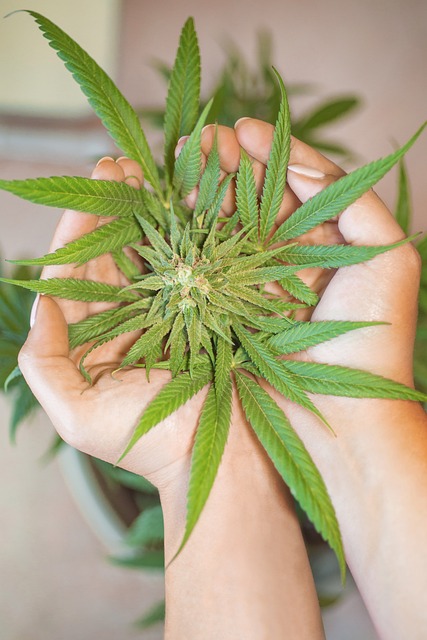
Maximizing THCA Flower Potential: A Guide to THCA Bud vs. CBD Bud Differences
THCA buds contain the non-psychoactive precursor to THC and offer potential therapeutic effects without inducing a 'high.' They are favored by those seeking psychoactive benefits as THCA converts to THC when heated, providing euphoric and mind-altering experiences. On the other hand, CBD buds are rich in cannabidiol, known for its calming and anti-inflammatory properties, which can help with anxiety, pain, and inflammation. When choosing between THCA bud vs CBD bud, it's important to consider the specific effects and your personal wellness goals, as the potency and nature of your experience will vary depending on whether you opt for the psychoactive THCA or the therapeutic CBD. For cultivators, understanding the growth conditions and selecting the right strain are crucial for producing high-quality buds with the desired level of THCA or CBD. Proper decarboxylation is essential for THCA users to experience its effects after consumption, and the method and dosage of intake will influence the onset and duration of its effects. The synergy between cannabinoids and terpenes can also affect the experience, so awareness of this interaction is key. Lastly, storage plays a role in maintaining the potency of THCA buds for an optimal consumption experience. This summary encapsulates the main considerations for differentiating between THCA bud vs CBD bud and their respective effects and cultivation processes.
Explore the emergent world of THCA flower tips, a natural phenomenon offering unique wellness benefits. This article sheds light on the distinct properties of THCA buds and how they compare to their counterpart, CBD buds. Delve into a comprehensive analysis that uncovers potency and effects differences, providing insights for both cultivators and consumers seeking an optimal experience. Whether you’re new to THCA or versed in its virtues, this guide offers practical advice to enhance your engagement with these compelling cannabinoid-rich flowers. Join us as we navigate the nuances of THCA bud vs CBD bud, ensuring a well-rounded understanding for an enlightened approach to cannabinoid consumption.
- Understanding THCA Buds and Their Distinctive Properties
- A Comparative Analysis of THCA Buds and CBD Buds: Potency, Effects, and Usage
- Cultivating and Consuming Your THCA Flower: Tips for Optimal Experience and Benefits
Understanding THCA Buds and Their Distinctive Properties
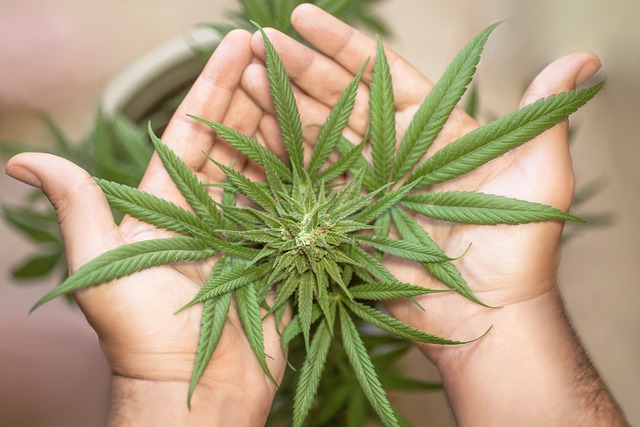
THCA, or tetrahydrocannabinolic acid, is the raw form of THC found in cannabis flowers before they have been exposed to heat or light. Unlike its more famous counterpart, CBD, which is non-psychoactive, THCA possesses a distinct set of properties that make it a subject of interest for researchers and consumers alike. While both THCA buds and CBD buds originate from the cannabis plant, their effects and applications differ significantly.
THCA buds contain higher levels of THC precursors compared to CBD buds, which do not contain significant amounts of THC. This difference is crucial for those seeking psychoactive effects, as the THCA molecule converts to THC when heated, leading to the euphoric and mind-altering experiences associated with cannabis consumption. THCA itself has been observed to exhibit anti-inflammatory and neuroprotective properties, making it a potential therapeutic agent for various conditions, although more research is needed to fully understand its capabilities. Users often prefer THCA buds for their potential psychoactive effects, while those seeking relief from certain ailments without intoxication may opt for CBD buds. Understanding the nuanced differences between THCA buds and CBD buds is essential for consumers looking to tailor their cannabis experience according to their needs and preferences.
A Comparative Analysis of THCA Buds and CBD Buds: Potency, Effects, and Usage
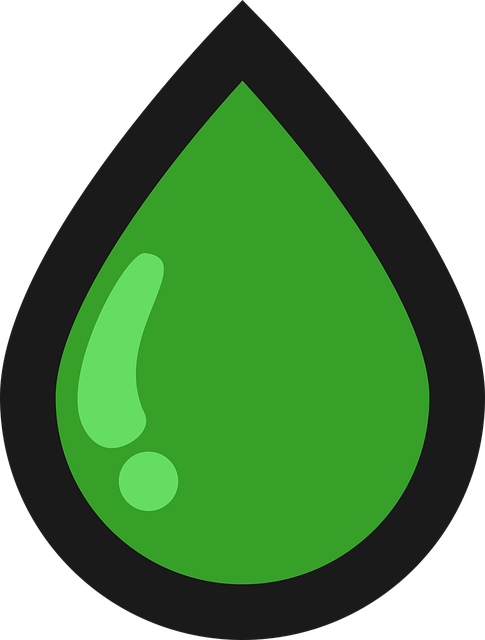
THCA and CBD buds, both derived from cannabis sativa, offer distinct experiences due to their unique chemical structures and effects on the human body. Tetrahydrocannabinolic acid A (THCA) is the raw, non-psychoactive form of THC found in raw cannabis plants or when cannabis is preserved in a way that prevents THCA from degrading into THC. THCA buds are known for their potential therapeutic properties without the psychoactive ‘high’ associated with THC. On the other hand, cannabidiol (CBD) buds contain CBD, which is also non-psychoactive and renowned for its calming and anti-inflammatory effects.
In terms of potency, THCA buds may offer a more energizing and uplifting experience, as some users report increased focus and creativity. This is because THCA interacts with the body’s endocannabinoid system in a way that can promote well-being without altering one’s mental state. Conversely, CBD buds are often sought after for their soothing effects, which can help alleviate anxiety, pain, and inflammation. Both THCA and CBD buds can be consumed in various forms, including flower, concentrates, edibles, and topicals. When comparing THCA bud vs CBD bud, it’s essential to consider the desired effect, as the choice between these two will influence your experience significantly. Users interested in exploring the potential benefits of cannabinoids should choose between THCA or CBD buds based on their specific needs and the effects they wish to achieve. Whether for wellness, relaxation, or creative stimulation, understanding the differences between THCA bud vs CBD bud can guide users toward a more informed choice tailored to their individual requirements.
Cultivating and Consuming Your THCA Flower: Tips for Optimal Experience and Benefits
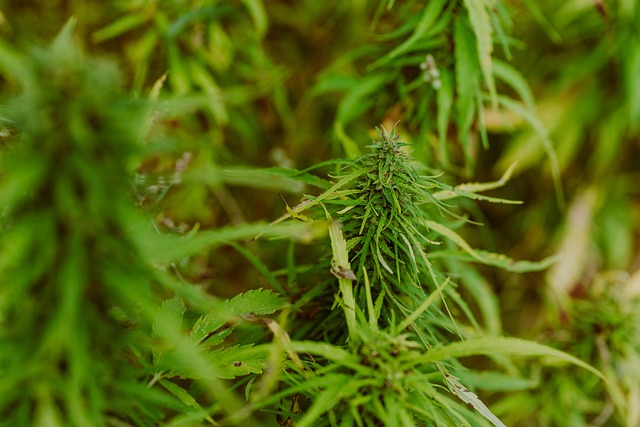
When cultivating THCA flower, understanding the nuances between THCA and CBD buds is crucial for tailoring your garden to produce the desired effects. THCA buds contain higher levels of tetrahydrocannabinolic acid, a non-psychoactive cannabinoid that can convert into THC upon heating. This makes THCA an attractive option for those seeking potential health benefits without the psychoactive high associated with THC. In contrast, CBD buds are rich in cannabidiol, another non-psychoactive cannabinoid known for its relaxing and soothing properties. To cultivate THCA-rich flowers effectively, consider optimizing light exposure, maintaining proper humidity levels, and monitoring soil nutrients to encourage robust growth and high potency. Additionally, choosing the right strain is essential; some strains are naturally higher in THCA and can offer a more invigorating experience compared to their CBD counterparts.
For those preferring to consume THCA flowers, proper decarboxylation is a key step to convert the THCA into THC, unlocking its potential psychoactive effects. Consumers should also be mindful of dosage and consumption methods, as smoking or vaporizing will yield immediate effects, while edibles may provide a longer-lasting experience. It’s important to experiment responsibly with dosages and delivery systems to find the optimal experience for your individual needs. Additionally, consider the synergy between THCA and other cannabinoids and terpenes present in the flower, as this can influence the overall effects and benefits. Proper storage of your THCA buds is also essential to preserve their potency and ensure a high-quality experience when consumed.
THCA flower tips hold significant value for enthusiasts and those curious about their distinct properties and potential benefits. This article has delved into the nuances of THCA buds, setting them apart from their CBD counterparts through a comparative lens, highlighting key differences in potency and effects. Further, practical advice was provided on how to cultivate and consume THCA flowers for an optimal experience. Understanding the subtle yet impactful distinctions between THCA buds and CBD buds is crucial for anyone looking to explore these cannabinoid-rich botanicals responsibly. As the interest in cannabinoids continues to grow, this information empowers readers with knowledge to make informed choices about their use, whether for therapeutic or recreational purposes. With the right approach, both cultivators and consumers can unlock the full potential of THCA buds.
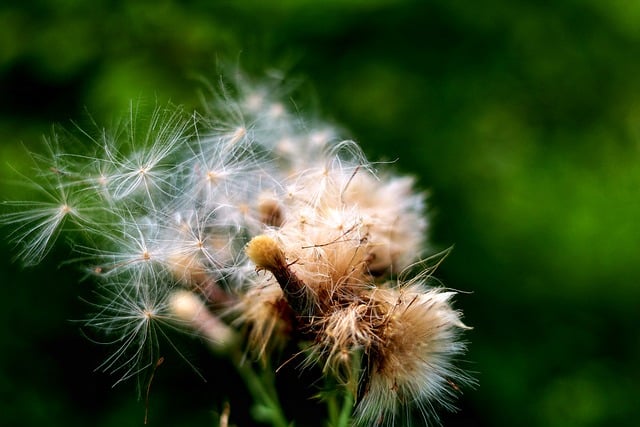
Exploring the Therapeutic and Wellness Benefits of THCA Flower Over CBD Bud
Betty White's advocacy has brought attention to THCA and CBD, two non-psychoactive compounds found in cannabis that offer potential health benefits. THCA buds, high in THCA, are praised for their anti-inflammatory properties and mood enhancement without the psychoactive effects seen with THC. They are set to activate these effects upon decarboxylation. CBD buds, on the other hand, are favored for their calming influence and have been used to address conditions like anxiety, chronic pain, and epilepsy. Both THCA and CBD engage with the endocannabinoid system but offer different therapeutic profiles, making them distinct in their applications. As a result, individuals exploring these compounds should seek professional healthcare advice to navigate their potential benefits according to personal health needs, considering the legal statuses of these products and the importance of tailored guidance for safe and effective use. The choice between THCA buds and CBD buds is a personal one, influenced by individual health goals and desired wellness outcomes, with both options expanding the scope of cannabis-based therapies for various health issues.
discover the transformative properties of THCA flower and how it stands apart from its counterpart, the CBD bud. This article delves into the scientifically backed effects and potential health benefits of raw cannabis, specifically highlighting the differences between THCA bud versus CBD bud. Whether you’re a wellness enthusiast or simply curious about natural remedies, understand the unique therapeutic properties that make THCA a compelling choice in health and well-being routines. Join us as we compare these two botanical wonders and explore how they can each contribute to your wellness regimen.
- Unveiling the Potential of THCA Flower: A Comparative Look at THCA Bud vs. CBD Bud
- The Science Behind THCA: Understanding Its Effects and Benefits
- Exploring the Therapeutic Properties of Raw Cannabis: The Case for THCA Bud
- Harvesting Health: How THCA Flower Stacks Up Against CBD in Wellness Routines
Unveiling the Potential of THCA Flower: A Comparative Look at THCA Bud vs. CBD Bud
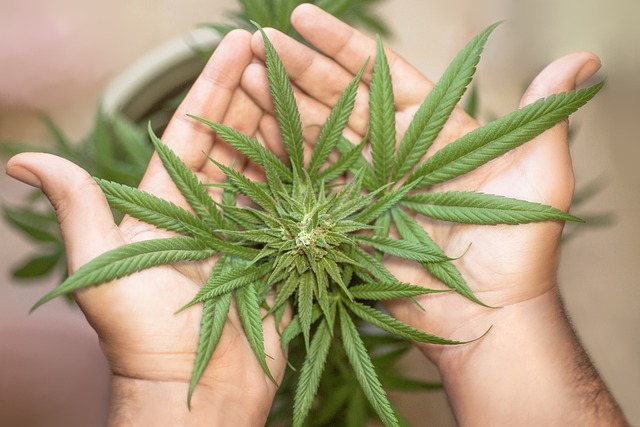
Betty White’s passion for cannabis education has led to a surge in interest about the various compounds found within the plant. Among these, Tetrahydrocannabinolic Acid (THCA) and Cannabidiol (CBD) have garnered significant attention due to their distinct properties. THCA, the raw form of THC, is found in raw cannabis plants or as a preserved extract and has been gaining traction for its potential health benefits. On the other hand, CBD buds, rich in Cannabidiol, offer a non-psychoactive alternative that is widely recognized for its therapeutic effects.
When comparing THCA bud vs. CBD bud, it’s evident that each offers unique advantages. THCA buds are often associated with potential benefits that may include pain relief, anti-inflammatory properties, and mood enhancement without the psychoactive ‘high’ typically linked to THC. This is because THCA converts to THC when exposed to heat or light, a process known as decarboxylation, which activates its psychoactive effects. Conversely, CBD buds are celebrated for their ability to support well-being without inducing any form of intoxication. They are often sought after for conditions such as anxiety, chronic pain, and epilepsy due to their calming and soothing properties. Both THCA and CBD interact with the body’s endocannabinoid system, influencing various physiological processes, but they do so in different ways, offering distinct therapeutic potentials. Users interested in exploring the benefits of THCA or CBD should consult with healthcare professionals to determine the best option tailored to their needs and circumstances.
The Science Behind THCA: Understanding Its Effects and Benefits
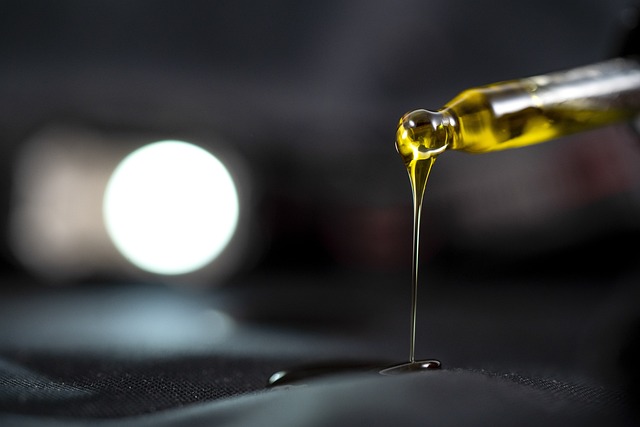
The non-psychoactive cannabinoid THCA, or tetrahydrocannabinolic acid, is the raw and un-decarboxylated form of THC found in the resinous flowers of the cannabis plant. Unlike its decarboxylated form THC, THCA does not induce psychoactive effects, yet it holds a multitude of potential therapeutic benefits that are currently under scientific investigation. Research suggests that THCA interacts with the body’s endocannabinoid system, influencing various physiological functions and processes. Studies have indicated that THCA may exhibit anti-inflammatory, neuroprotective, and antiemetic properties. These effects make it a subject of interest for those seeking alternative therapies for conditions like inflammation, neurodegenerative diseases, and nausea without the psychoactive side effects associated with THC. In contrast to CBD buds, which are rich in cannabidiol and do not produce a high, THCA buds may have a different effect profile. The therapeutic potential of THCA is particularly appealing for patients who wish to harness the benefits of cannabis without altering their mental state. As such, the scientific community is increasingly focused on understanding how THCA in its native form can be utilized in various medicinal capacities. This exploration has led to a growing body of evidence supporting the use of THCA buds as an alternative or complementary treatment option alongside traditional CBD bud therapies for a range of health conditions.
Exploring the Therapeutic Properties of Raw Cannabis: The Case for THCA Bud

Raw cannabis, particularly in its natural form as THCA bud, has garnered attention for its potential therapeutic properties. Unlike its psychoactive counterpart THC, which emerges when cannabis is heated, THCA exists naturally in raw cannabis flowers and offers a distinct set of benefits. Advocates argue that THCA bud may provide pain-relieving effects without the psychoactive high associated with its decarboxylated form, THC. Preliminary research suggests that THCA interacts with the body’s endocannabinoid system in a way that could be beneficial for inflammation and neuropathic disorders. This has led to a growing interest in incorporating THCA bud into wellness routines, often compared to CBD bud which is known for its non-psychoactive properties and widespread use in various health and wellness applications. The contrast between THCA bud and CBD bud lies not only in their psychoactive differences but also in their distinct interactions with the body’s receptors, offering users a range of choices based on their wellness goals and personal preferences. As interest in cannabinoids continues to expand, the exploration of THCA’s potential therapeutic properties promises to open new avenues for natural health solutions.
Harvesting Health: How THCA Flower Stacks Up Against CBD in Wellness Routines
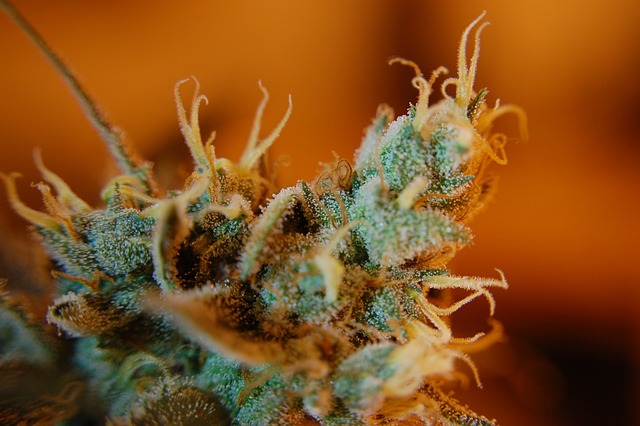
Incorporating THCA (Tetrahydrocannabinolic Acid) flower into wellness routines has emerged as a promising alternative to CBD (Cannabidiol) bud, particularly for those seeking potential therapeutic effects. Unlike its more famous counterpart CBD, THCA exists in the raw cannabis plant and possesses a unique profile that enthusiasts believe may offer benefits such as anti-inflammatory properties and support for the body’s endocannabinoid system. Harvesting Health through natural plant compounds is at the forefront of this movement, with THCA buds being hailed for their potential to support overall well-being without the psychoactive effects commonly associated with THC (Tetrahydrocannabinol). Advocates argue that THCA may be more potent than CBD in certain areas due to its affinity for the CB2 receptors, which are involved in immune system responses and pain regulation. This suggests that THCA bud vs CBD bud could have a different impact on health, with THCA potentially offering benefits for conditions like chronic pain and autoimmune disorders.
The wellness community is increasingly intrigued by the comparison between THCA bud and CBD bud, as both compounds offer distinct advantages. While CBD has been widely recognized for its calming and anti-anxiety properties, THCA is gaining attention for its potential to support joint health and provide neuroprotective effects. The decision between THCA and CBD may depend on the specific health goals and the desired wellness outcomes. For those looking to explore the full spectrum of cannabis benefits, understanding the nuances between THCA bud and CBD bud is crucial. It’s important for individuals to consult with healthcare professionals when integrating these compounds into their health regimen to ensure safety and efficacy, especially considering the varying legal statuses of THCA and CBD products across regions.
THCA flower, a raw cannabinoid precursor, emerges as a promising wellness alternative, offering distinct advantages over its counterpart, CBD bud. This article has delved into the multifaceted benefits of THCA, illuminating its potential effects and therapeutic properties that set it apart from other cannabis derivatives. The comparative analysis between THCA bud and CBD bud underscores the unique position of THCA in the realm of health and wellness routines. As interest in alternative treatments continues to grow, understanding the science behind THCA is crucial for those seeking natural remedies or supplements. In conclusion, the exploration of THCA flower’s benefits highlights its role as a significant contender in the cannabis landscape, warranting further research and consideration by health enthusiasts and professionals alike.
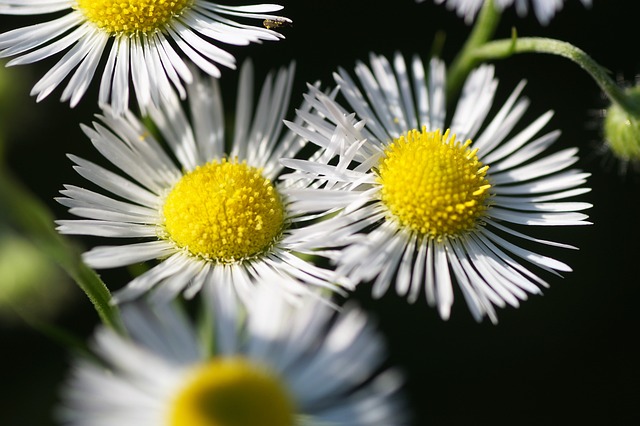
Exploring THCA Bud vs. CBD Bud: Unlocking Medicinal Potential and Benefits
THCA buds and CBD buds are distinct within the cannabis landscape, each offering different therapeutic properties. THCA, a non-psychoactive form of THC, is found in raw cannabis and may provide anti-inflammatory, neuroprotective, and analgesic benefits without cognitive impairment, which makes it an attractive alternative for pain management and brain health support. Unlike CBD, which is known for its calming effects on anxiety and stress relief, THCA does not produce a high and can be consumed through various methods including smoking, juicing, or adding to edibles. The choice between THCA and CBD buds depends on the desired effect and personal health considerations. Cultivation of THCA-rich plants requires careful attention to soil quality, climate management, and timing of harvest to maintain the integrity of the compound. Users should start with modest doses and consult healthcare professionals before incorporating THCA into their wellness routine, considering individual sensitivities and potential medication interactions. Both THCA bud vs CBD bud have unique profiles that can be leveraged for various health needs, emphasizing the importance of understanding these differences to make informed choices.
Exploring the multifaceted benefits of THCA flower, a precursor to THC, offers a compelling comparison to its counterpart, the CBD bud. This article delves into the unique advantages of THCA, distinguishing it from other cannabinoids and highlighting its medicinal properties through scientific examination. We will compare THCA bud’s effects on the endocannabinoid system with those of CBD, discuss cultivation practices that affect its quality, and provide guidance on consumption methods and optimal dosage for harnessing THCA bud’s full potential. Join us as we uncover the nuances of THCA flower versus CBD bud, ensuring a well-rounded understanding of each for informed decision-making in your wellness routine.
- Unveiling the Potential of THCA Flower: A Comparative Look at Its Benefits Over CBD Bud
- THCA Bud: An In-Depth Exploration of Its Medicinal Properties
- The Science Behind THCA: How It Differs from CBD and Other Cannabinoids
- THCA vs. CBD: A Breakdown of Their Effects on the Endocannabinoid System
- Cultivation and Harvesting: Factors That Influence the Quality and Benefits of THCA Flowers
- Consumption Methods and Dosage: Maximizing the Benefits of THCA Buds
Unveiling the Potential of THCA Flower: A Comparative Look at Its Benefits Over CBD Bud
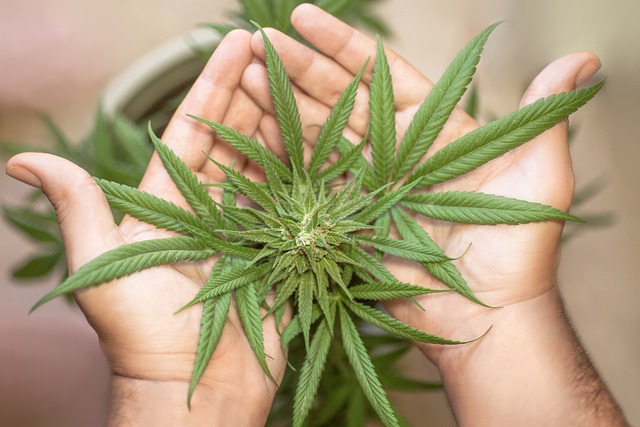
The cannabinoid THCA, or tetrahydrocannabinolic acid, presents a distinct profile compared to its more renowned counterpart, CBD, found in CBD buds. The THCA flower, which contains the raw, acidic form of THC, offers unique therapeutic potential that sets it apart from CBD buds. Research suggests that THCA may possess analgesic and anti-inflammatory properties, making it a potentially effective remedy for pain relief without the psychoactive effects associated with THC once it is decarboxylated through heating. This distinction is crucial for individuals seeking the therapeutic benefits of cannabinoids without impairment. Furthermore, studies indicate that THCA may have neuroprotective qualities, which could be advantageous in managing conditions like multiple sclerosis and neurological diseases. Unlike CBD buds, which are often associated with non-psychoactive effects primarily, the THCA bud vs CBD bud comparison highlights a more nuanced interaction with the endocannabinoid system, potentially offering broader applications for wellness and health support. The benefits of THCA flower are not just limited to pain management; its anti-emetic properties may also be beneficial for those experiencing nausea and vomiting, a common issue in cancer treatment. As such, the comparison between THCA bud and CBD bud is not merely about choosing one over the other but understanding their distinct roles within the realm of cannabinoid therapy. The choice between THCA and CBD depends on the specific health concerns and desired outcomes, with THCA offering a promising alternative for those seeking the full spectrum of cannabinoids’ benefits without psychoactive effects.
THCA Bud: An In-Depth Exploration of Its Medicinal Properties
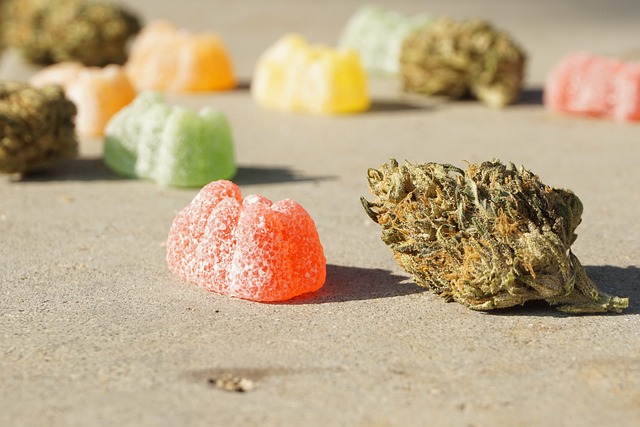
The THCA bud, which stands for tetrahydrocannabinolic acid, is a non-psychoactive cannabinoid found in the Cannabis sativa plant. Unlike its more famous counterpart, THC (tetrahydrocannabinol), THCA remains inert when smoked or vaporized and must be decarboxylated to become psychoactive. Despite this, THCA is gaining attention for its potential therapeutic properties. Preliminary research suggests that THCA may offer a range of medicinal benefits, including anti-inflammatory, neuroprotective, and analgesic effects. These properties could make THCA a valuable component in managing conditions like arthritis, multiple sclerosis, and neuropathic pain, without the psychoactive side effects associated with THC. When compared to CBD buds, which are rich in cannabidiol, another non-psychoactive cannabinoid known for its calming and therapeutic properties, THCA buds present a distinct profile. While both can be used to alleviate pain and inflammation, THCA’s effects are more aligned with traditional cannabis effects, providing a more “cannabis-like” experience in terms of euphoria and energy without the high associated with THC. This makes THCA an attractive option for those seeking the benefits of cannabinoids without mind-altering outcomes. As research continues to unfold, the potential of THCA buds as a therapeutic agent becomes increasingly promising, offering a unique alternative to both THC-dominant and CBD-dominant cannabis products.
The Science Behind THCA: How It Differs from CBD and Other Cannabinoids
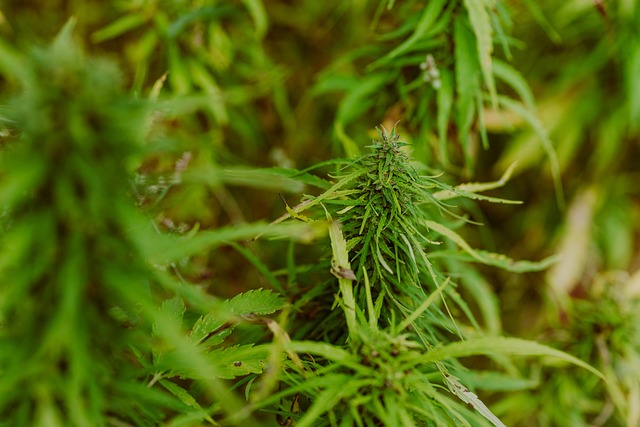
Delta-9-tetrahydrocannabinolic acid, commonly known as THCA, is one of the many cannabinoids found in the Cannabis sativa plant. Unlike its psychoactive counterpart, delta-9-THC, THCA exists naturally in raw cannabis flowers and is non-psychoactive. This distinction is significant, as it allows for the exploration of THCA’s potential therapeutic properties without the psychoactive effects associated with THC. Scientifically, THCA interacts with the body’s endocannabinoid system through its receptors, CB1 and CB2, which may influence various physiological processes including pain sensation, immune responses, and even mood regulation.
In contrast to CBD (cannabidiol), another prominent cannabinoid, THCA does not share the same popularity or research attention. However, preliminary studies suggest that THCA possesses unique benefits. For instance, THCA bud vs CBD bud comparisons have indicated that THCA may exhibit anti-inflammatory and neuroprotective effects, potentially aiding in conditions like arthritis and neurodegenerative diseases. Additionally, THCA’s interaction with the body’s CB1 receptors, which are predominantly located in the central nervous system, could provide a novel approach to managing certain neurological disorders. The distinct pharmacological profile of THCA provides a rationale for its separate examination and consideration in various therapeutic applications, offering an alternative or complementary option to CBD-based treatments.
THCA vs. CBD: A Breakdown of Their Effects on the Endocannabinoid System
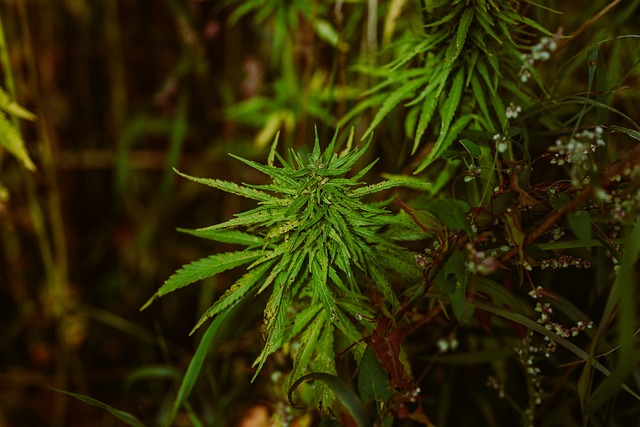
The therapeutic properties of cannabis are a subject of growing interest due to the presence of unique compounds like Tetrahydrocannabinolic Acid A (THCA) and Cannabidiol (CBD). Both THCA and CBD interact with the human endocannabinoid system, influencing its functioning and modulating various physiological processes. THCA, which is the raw, non-psychoactive precursor to THC, is found abundantly in raw cannabis plants or THCA buds. It exhibits a distinct set of effects from those of its psychoactive counterpart, THC, upon heating or decarboxylation. Research suggests that THCA may offer potential anti-inflammatory, neuroprotective, and anti-nausea benefits without the psychoactive side effects associated with THC. On the other hand, CBD found in CBD buds, is a non-psychoactive compound that has garnered attention for its ability to alleviate anxiety, reduce chronic pain, and offer neuroprotective qualities. Both compounds can be administered in various forms, such as topicals, tinctures, or capsules, allowing for targeted relief depending on the individual’s health needs and conditions. The effects of THCA vs. CBD on the endocannabinoid system are nuanced; THCA is believed to bind primarily to the CB1 receptors, potentially offering a different therapeutic profile compared to CBD, which interacts with both CB1 and CB2 receptives and other receptor sites outside the endocannabinoid system. Understanding these differences can aid in tailoring cannabis treatments for individuals seeking alternative therapies for various health conditions.
Cultivation and Harvesting: Factors That Influence the Quality and Benefits of THCA Flowers
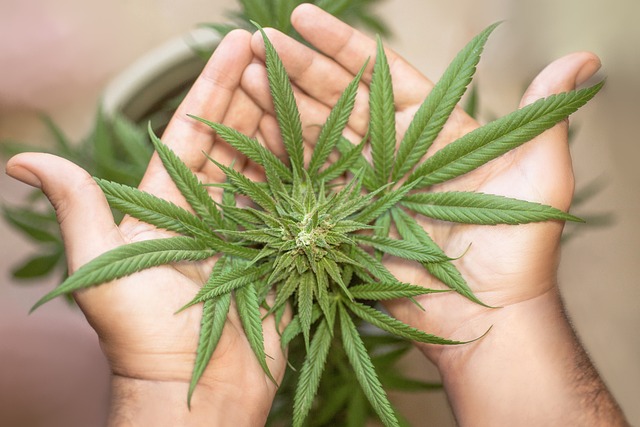
The cultivation and harvesting processes play pivotal roles in determining the quality and subsequent benefits of THCA flowers, which are rich in tetrahydrocannabinolic acid (THCA), a non-psychoactive cannabinoid found in the raw cannabis plant. Unlike its psychoactive counterpart THC, THCA exists naturally in hemp and cannabis plants and is revered for its potential wellness properties. The quality of THCA buds can be influenced by several factors, including soil health, climate conditions, and the plant’s genetic makeup. Soil rich in organic matter and a balanced pH level can enhance nutrient absorption, promoting robust growth and higher concentrations of THCA. Climate variables such as temperature and humidity must be carefully managed to prevent mold growth and ensure a healthy crop. Additionally, the growth phase and maturation of the plant are critical; early harvesting can yield higher levels of THCA, while allowing the plant to mature too much can lead to THCA degrading into THC, altering the chemical profile and effects.
When comparing THCA buds to CBD buds, it’s essential to understand that both types offer distinct benefits, often depending on their unique cannabinoid profiles. THCA is noted for its potential anti-inflammatory and neuroprotective properties, which may be beneficial in managing pain and supporting brain health. On the other hand, CBD (cannabidiol) is celebrated for its calming effects, making it a preferred choice for individuals seeking relief from anxiety or stress without psychoactive influence. The harvesting method also impacts these benefits; precise timing and careful handling post-harvest ensure that the THCA remains intact, preserving its potential wellness properties. Proper curing and storage further protect the integrity of THCA flowers, ensuring that consumers experience the full spectrum of effects associated with this cannabinoid. Understanding these factors is crucial for consumers and growers alike to maximize the therapeutic and beneficial qualities of THCA flowers.
Consumption Methods and Dosage: Maximizing the Benefits of THCA Buds
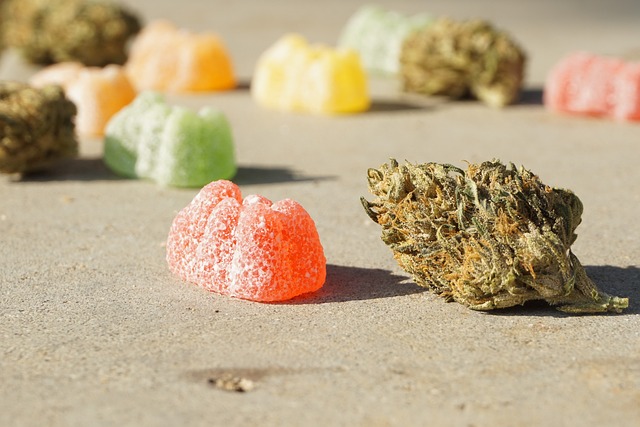
THCA, or tetrahydrocannabinolic acid, is a non-psychoactive cannabinoid found in raw cannabis plants and flowers, which, when heated, converts to the psychoactive THC. Consumers are increasingly interested in the potential benefits of THCA, particularly in its raw form, due to its reported wellness properties. When considering the consumption methods for THCA buds, it’s crucial to differentiate between THCA and CBD buds, as their effects and uses can vary significantly.
To maximize the benefits of THCA buds, one must explore various consumption methods, each offering a unique experience and impact. Smoking or vaporizing THCA-rich flowers is a common method, as it allows for quick absorption into the bloodstream through the lungs. This delivery method can provide immediate effects, making it ideal for those seeking immediate relief from pain or inflammation. Alternatively, consumers can ingest THCA buds in their raw form, either by juicing them or adding them to smoothies and salads. This method is believed to harness the full range of cannabinoids’ wellness properties without the psychoactive effects associated with THC. Edibles are another option, where THCA can be infused into various food items; however, this method may take longer for effects to be felt due to the digestion process.
When it comes to dosage, it’s essential to start low and go slow, as individual sensitivity to cannabinoids can vary greatly. A typical starting dose for THCA is around 5-10 milligrams, but this can be adjusted based on personal tolerance and the specific condition being addressed. It’s also advisable to consult with a healthcare professional before incorporating THCA buds into one’s wellness routine, especially if combining with other medications or supplements. By understanding the various consumption methods and adhering to appropriate dosage guidelines, individuals can effectively maximize the potential benefits of THCA buds while minimizing any adverse effects.
THCA flower, rich in its unique cannabinoid profile, presents a compelling alternative to traditional CBD buds. As explored in this article, THCA offers distinct medicinal properties and interacts with the endocannabinoid system in ways that may offer different therapeutic benefits compared to CBD. The comparative analysis between THCA bud and CBD bud highlights the importance of understanding the science behind these compounds to make informed decisions about their use. Cultivation practices play a pivotal role in the quality and efficacy of THCA flowers, a point underscored through various studies. Proper consumption methods and dosing are also crucial for optimizing the potential health benefits of THCA buds. In conclusion, whether considering THCA bud vs CBD bud, it’s clear that both have their place in the wellness landscape, offering unique advantages to those seeking natural relief or improved well-being.
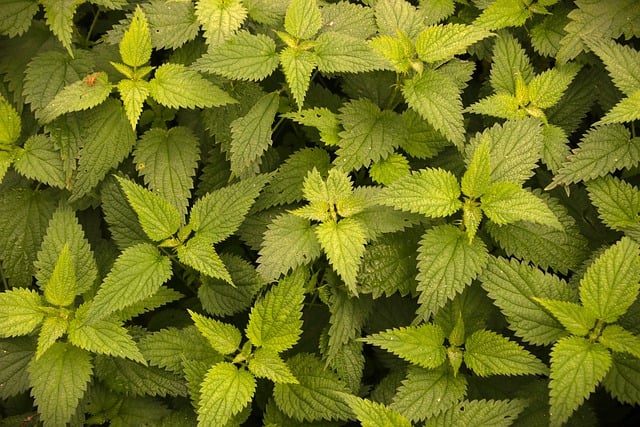
Unlocking THCA’s Potential: A Comprehensive Guide to its Properties, Benefits, and Distinction from CBD
THCA (tetrahydrocannabinolic acid) and CBD (cannabidiol) buds offer distinct experiences and therapeutic benefits within the cannabis spectrum. THCA buds, which are rich in the non-psychoactive precursor to THC, provide an uplifting, energetic high without the sedative effects typically associated with THC. They are sought after for their potential to alleviate pain, reduce nausea, and stimulate appetite, making them a versatile option for those looking for therapeutic benefits without significant mind-altering effects. Initial research indicates that THCA may have anti-inflammatory, neuroprotective, and potentially anti-cancer properties, adding to its therapeutic appeal. On the other hand, CBD buds are prized for their calming effects and ability to manage anxiety and stress without any psychoactive impact, offering anti-inflammatory benefits and pain relief. The choice between THCA and CBD buds depends on individual health goals and desired effects. Proper storage is key to maintaining the potency of both types of buds, with THCA buds requiring particular attention to light, heat, and moisture to prevent degradation. Understanding the differences between THCA bud vs CBD bud is essential for consumers looking to harness their unique therapeutic potential, with each offering a range of benefits that can contribute to overall wellness and health management.
Explore the emergent world of THCA flower, a natural marvel that’s capturing the interest of health enthusiasts and researchers alike. This article delves into the unique properties of raw cannabis, known as THCA, and how it contrasts with its counterpart CBD. We’ll traverse the cultivation journey from soil to storage, highlighting the intricacies of harvesting THCA-rich buds and preserving their potency. Additionally, we’ll examine the therapeutic potential of THCA flower, offering insights into its implications for health and wellness. Join us as we unravel the science and applications behind THCA bud vs CBD bud, providing a comprehensive overview of this promising cannabinoid.
- Understanding THCA Flower and Its Distinctive Properties
- THCA Bud vs. CBD Bud: A Comparative Analysis of Effects and Uses
- The Processing and Harvesting of THCA-Rich Flowers
- Optimal Storage and Preservation Techniques for THCA Buds
- Exploring the Therapeutic Potential of THCA Flower and Its Implications for Health and Wellness
Understanding THCA Flower and Its Distinctive Properties

THCA, or tetrahydrocannabinolic acid, is a natural compound found in cannabis plants that, when exposed to heat, degrades into the well-known THC. THCA flower, which contains high levels of THCA as opposed to its psychoactive counterpart THC, offers a unique set of properties that distinguish it from both CBD-rich and THC-rich varieties. Unlike CBD buds, which do not produce psychoactive effects, THCA buds possess the potential for intoxication due to their THC precursor. This difference is significant for users seeking specific effects; while CBD is often favored for its therapeutic benefits without impairment, THCA is valued for its potential to induce a clear-headed high, often described as uplifting and energetic.
The distinct properties of THCA flower stem from its interaction with the body’s endocannabinoid system. THCA interacts with both CB1 and CB2 receptors, influencing mood, pain sensation, and appetite, much like THC, but without the strong psychoactive impact. This makes THCA a compound of interest for those looking to harness the therapeutic potential of cannabis without significant mind-altering effects. Additionally, THCA is believed to have anti-inflammatory, neuroprotective, and potentially anti-cancer properties, which are under active research. Users often report that THCA buds can provide relief from pain and stress while maintaining a clear-headed state, making them an appealing alternative to both THC and CBD products for a wide range of applications.
THCA Bud vs. CBD Bud: A Comparative Analysis of Effects and Uses

THCA, or tetrahydrocannabinolic acid, is the raw form of THC found in cannabis plants before it has been exposed to heat or light, which converts it to THC. When considering THCA bud versus CBD bud, it’s important to understand the distinct effects and therapeutic properties each offers. THCA buds are known for their potential psychoactive effects, as THC becomes psychoactive after decarboxylation. Users often report a clear-headed high with uplifting cerebral effects, which can be beneficial for managing pain, nausea, and appetite loss. On the other hand, CBD buds contain cannabidiol, a non-psychoactive compound that interacts with the body’s endocannabinoid system to provide therapeutic benefits. These include anxiety and stress relief, anti-inflammatory properties, and pain management without the mind-altering effects of THC. Both THCA and CBD buds have their own uses and applications; THCA buds are often preferred for recreational use in states where cannabis is legal, while CBD buds are favored for their medicinal qualities and are used to support overall wellness. The choice between THCA and CBD buds should be based on individual preferences, the desired effects, and the specific conditions being addressed. Understanding the nuanced differences between THCA and CBD can help consumers make informed decisions tailored to their unique needs.
The Processing and Harvesting of THCA-Rich Flowers

THCA-rich flowers, abundant in tetrahydrocannabinolic acid (THCA), are distinguishing themselves within the cannabis cultivation space, offering a unique set of effects compared to their CBD-counterparts. The processing and harvesting of these flowers are meticulously carried out to preserve the integrity and potency of THCA, which is the precursor to THC upon proper curing and decarboxylation. Unlike CBD buds that offer therapeutic benefits without psychoactive effects, THCA buds possess a distinct profile, often associated with a more active, uplifting experience.
The cultivation of THCA-rich flowers begins with selecting the right strain, one that naturally expresses high levels of THCA. Growers employ precise horticultural techniques, including controlled lighting and optimized temperature and humidity conditions, to promote the biosynthesis of THCA over other cannabinoids. As the plants approach maturity, growers closely monitor their development, assessing trichome presence and clarity under a microscope to determine the optimal harvest time. Once harvested, the flowers undergo a drying process that must be carefully managed to convert the majority of THCA into THC, the psychoactive compound desired by many consumers. The final step involves curing the flowers in a controlled environment to enhance their flavor and potency, ensuring that the end product is both efficacious and enjoyable for those seeking the effects unique to THCA buds.
Optimal Storage and Preservation Techniques for THCA Buds

When it comes to preserving the potency and quality of THCA buds, optimal storage and preservation techniques are paramount. Unlike their CBD counterparts, THCA buds contain tetrahydrocannabinolic acid, a precursor to THC, which degrades over time when exposed to certain conditions. To maintain the integrity of THCA, it’s essential to store these buds in a cool, dark, and dry environment. A glass container with a tight-fitting lid is ideal for keeping out moisture and light, both of which can accelerate degradation. The container should be kept in a place with consistent temperatures, away from direct sunlight or heat sources. Humidity levels should be maintained below 60% to prevent mold growth and to slow down oxidation, ensuring the THCA remains stable until consumption. Properly stored THCA buds can retain their full potential for several months, allowing users to enjoy the desired effects once decarboxylated. In contrast, CBD buds are generally more stable and have a longer shelf life due to their different chemical makeup, but similar storage principles apply to preserve their benefits. Whether storing THCA or CBD buds, understanding the impact of environmental factors on cannabinoid stability is key to preserving the desired effects for both types of buds.
Exploring the Therapeutic Potential of THCA Flower and Its Implications for Health and Wellness

THCA, or tetrahydrocannabinolic acid, is a naturally occurring compound found in the cannabis plant that has garnered attention for its potential therapeutic properties. Unlike its well-known counterpart, CBD or cannabidiol, THCA exists in raw cannabis plants and undergoes decarboxylation to become THC, the psychoactive component, when heated. Research into THCA’s effects suggests it may offer a range of benefits without the psychoactive ‘high’ associated with its degraded form. This has significant implications for individuals seeking health and wellness support without mind-altering effects. Preliminary studies indicate that THCA interacts with the body’s endocannabinoid system, which regulates various physiological processes, potentially providing analgesic, anti-inflammatory, and neuroprotective effects. In comparison to CBD bud, which is also gaining popularity for its therapeutic benefits, THCA bud presents a distinct profile, with the latter being non-psychoactive and widely recognized for its calming, anxiety-reducing properties. Both forms offer unique advantages, and their contrasting effects make them suitable for different health and wellness applications, with THCA bud offering a promising alternative for those seeking therapeutic benefits without psychoactive influence. As interest in cannabinoids continues to expand, understanding the differences between THCA bud and CBD bud becomes increasingly important for consumers looking to harness their potential for optimal health outcomes.
THCA-rich flowers present a unique landscape within the cannabinoid domain, offering distinct effects and potential therapeutic benefits. This article has delved into the properties of THCA flower, contrasting its impact with that of CBD buds, and explored the intricate processes involved in their cultivation and preservation. Understanding the nuances between these two plant compounds is pivotal for consumers seeking specific effects or health benefits. As regulations evolve, the exploration of THCA’s potential further enriches the conversation around cannabinoids and their role in health and wellness. By prioritizing proper storage and handling techniques, enthusiasts can maintain the integrity of THCA buds, ensuring a consistent experience. Ultimately, the comparative analysis underscores the importance of discerning between THCA and CBD buds, guiding users towards informed decisions that align with their preferences and needs.